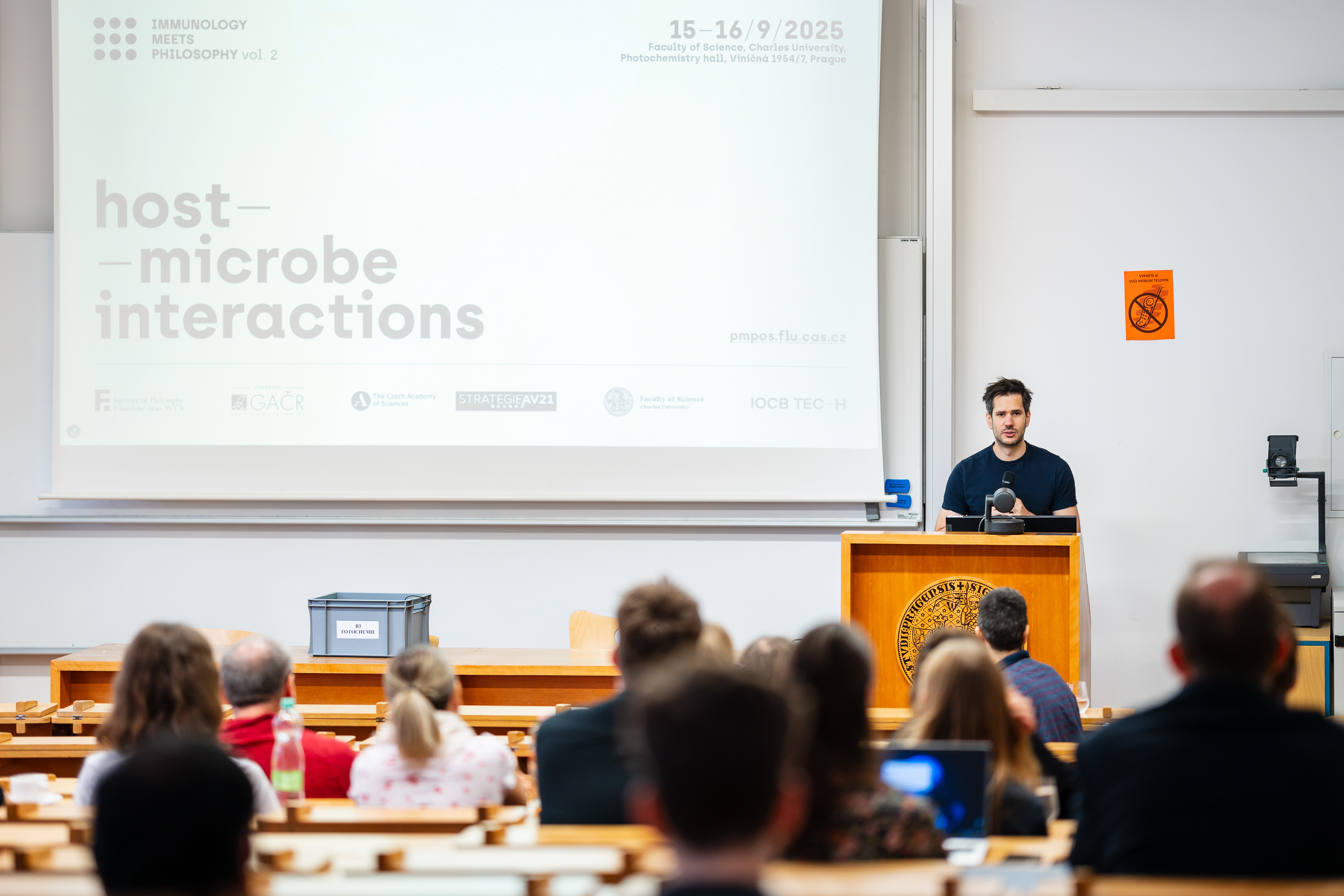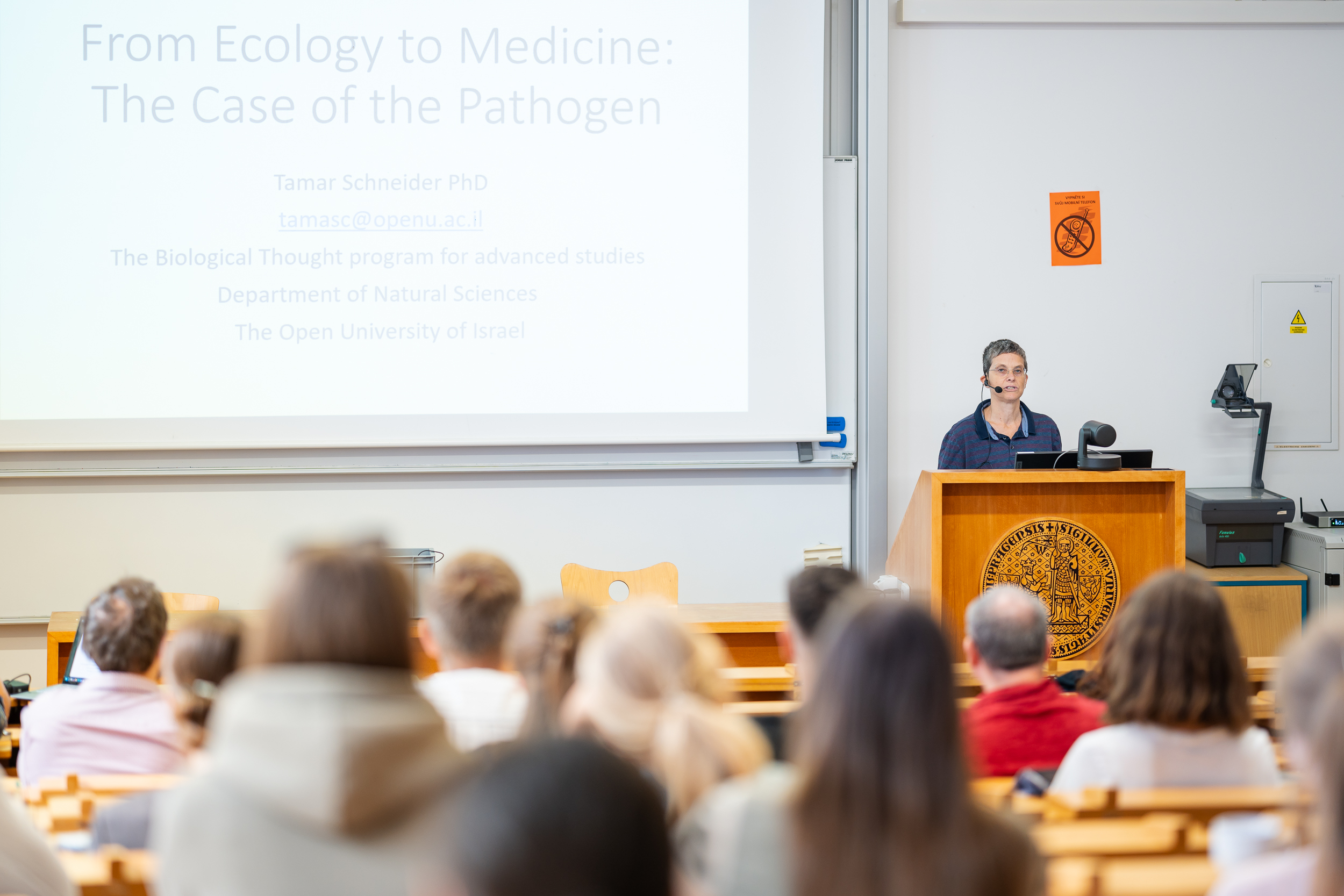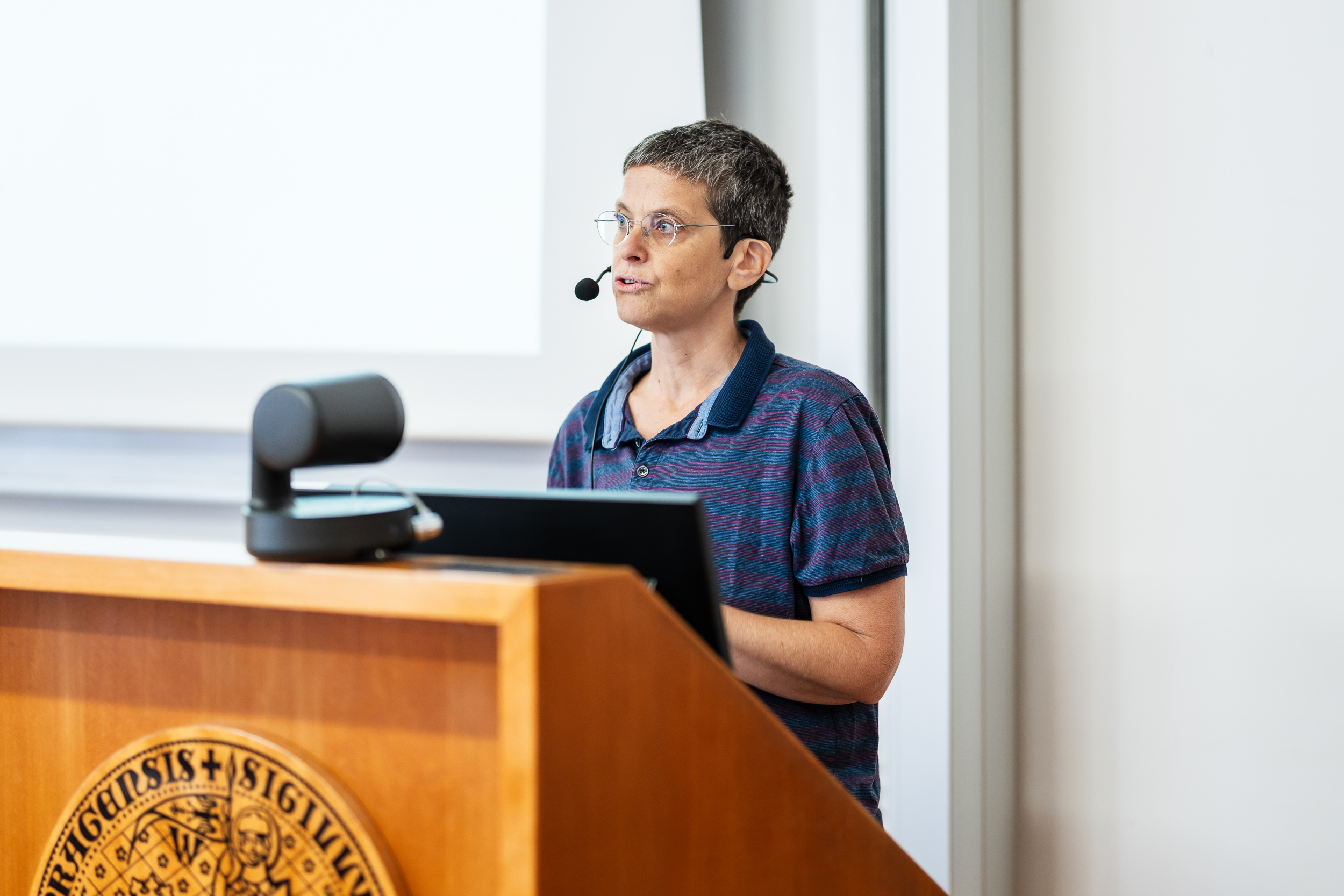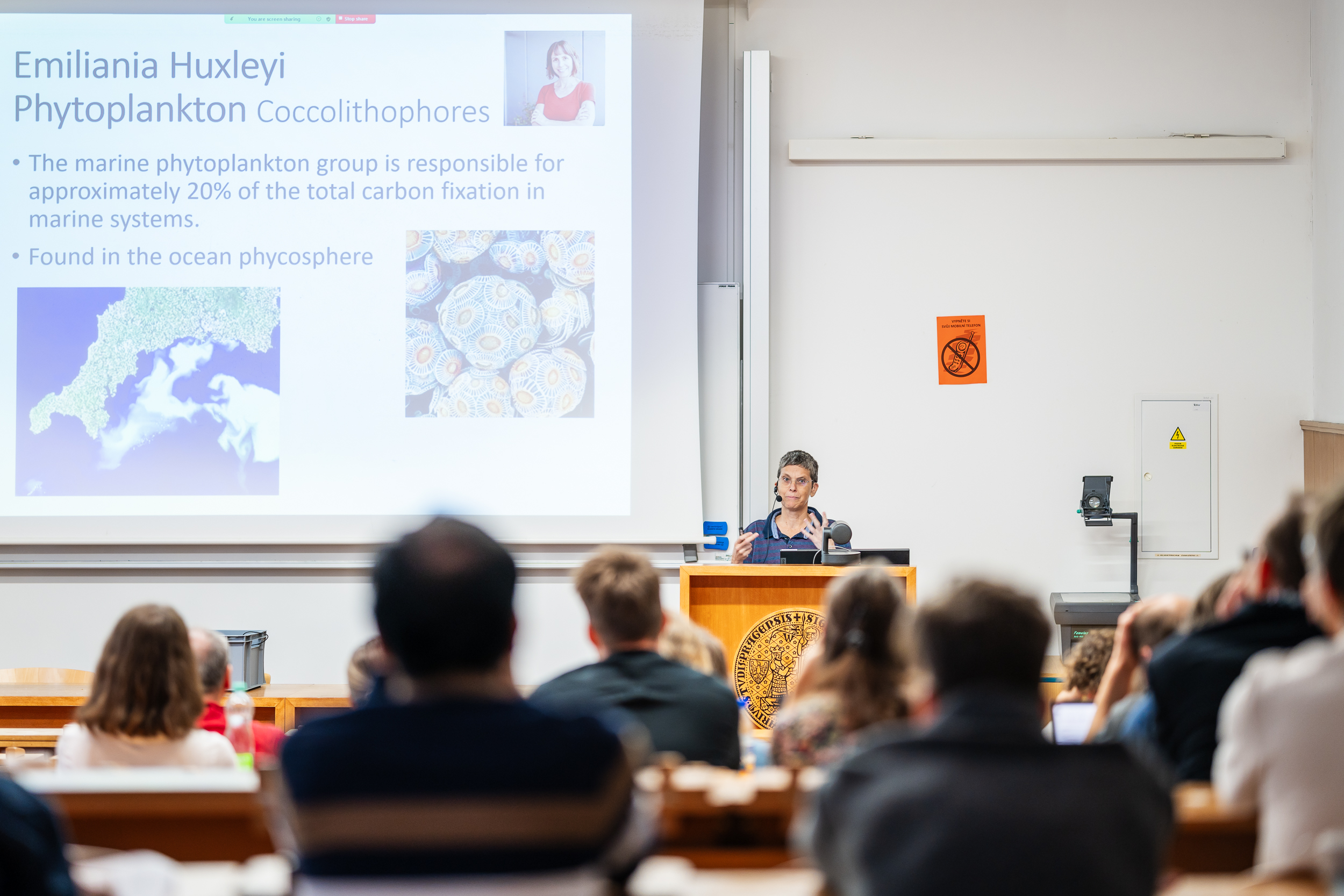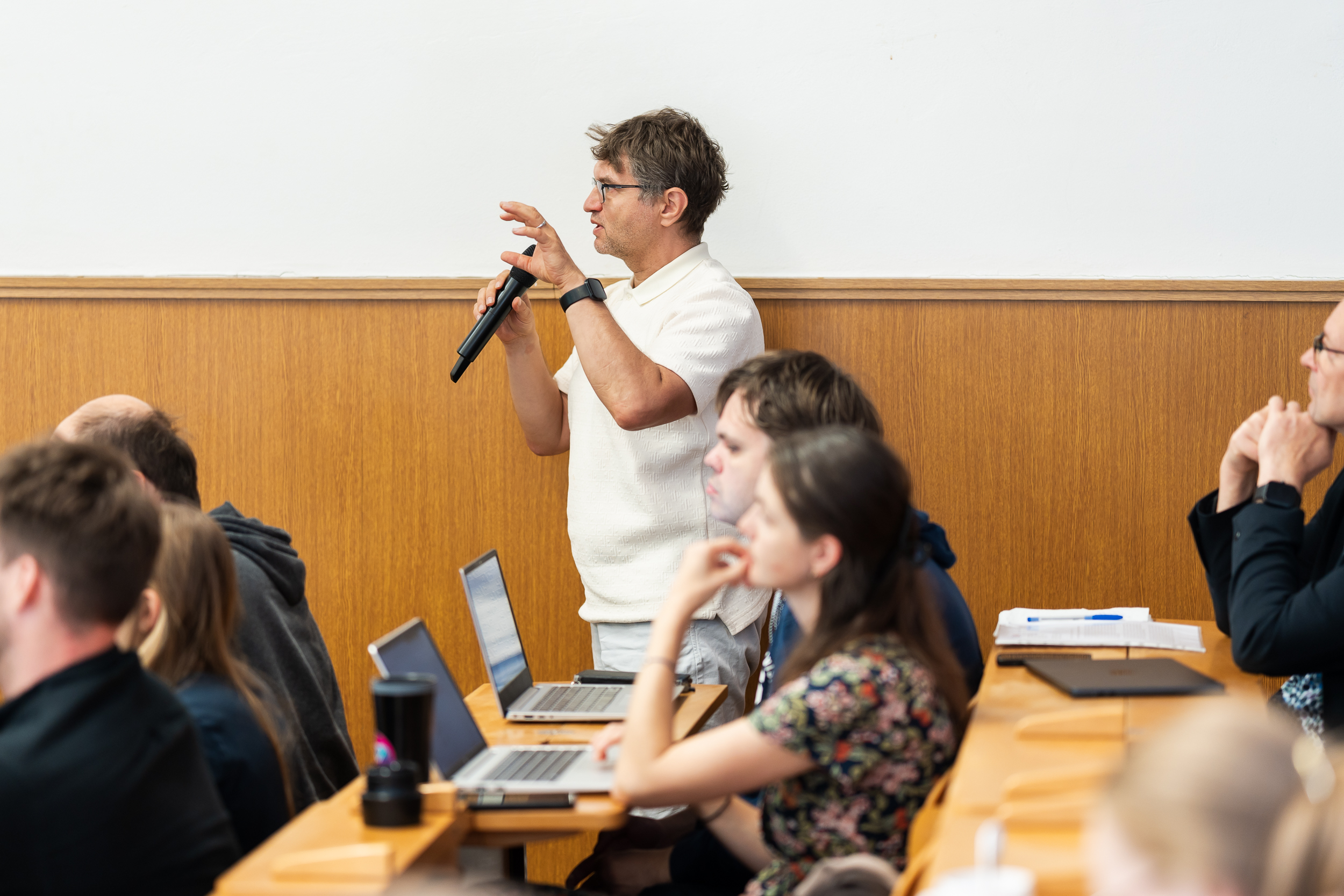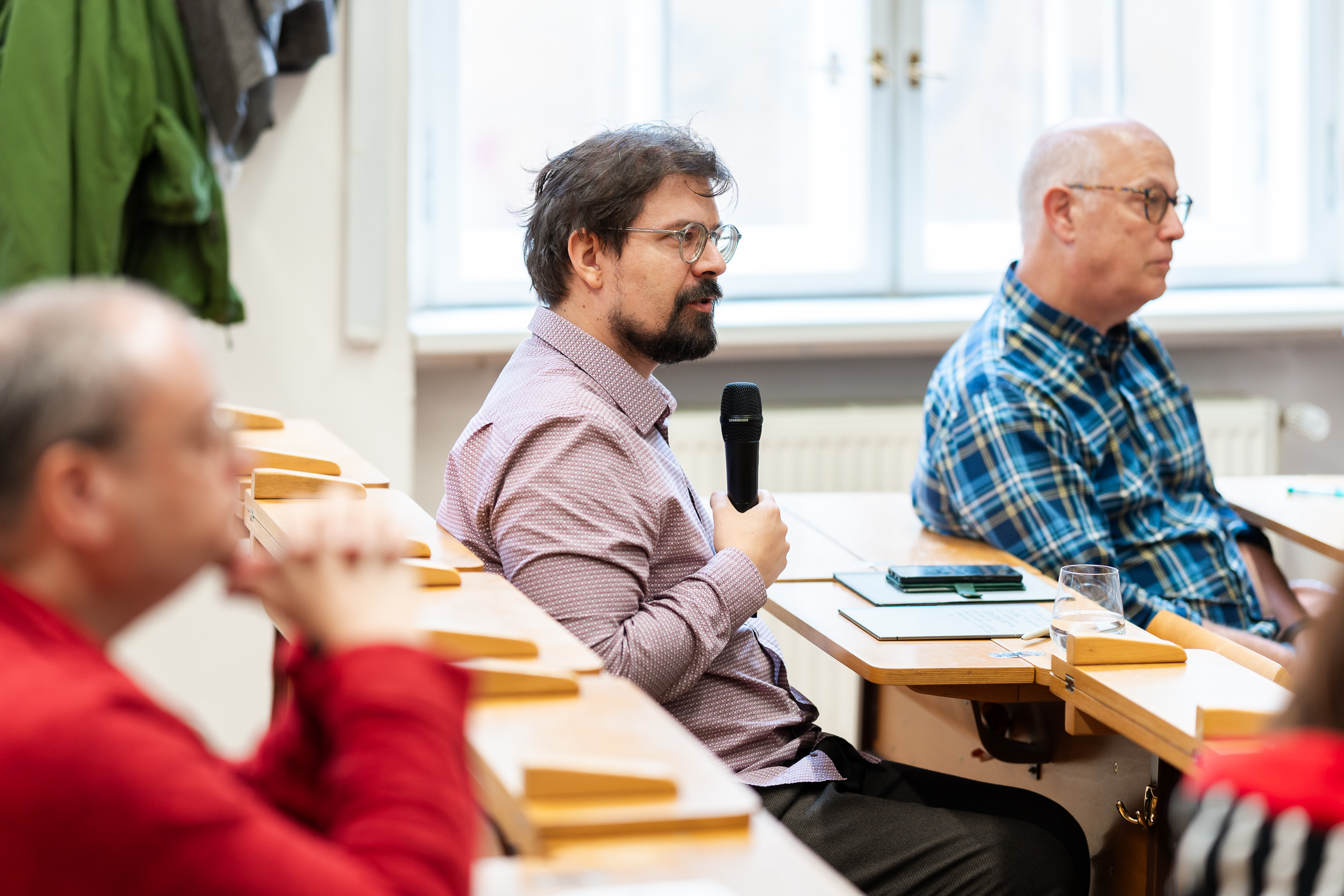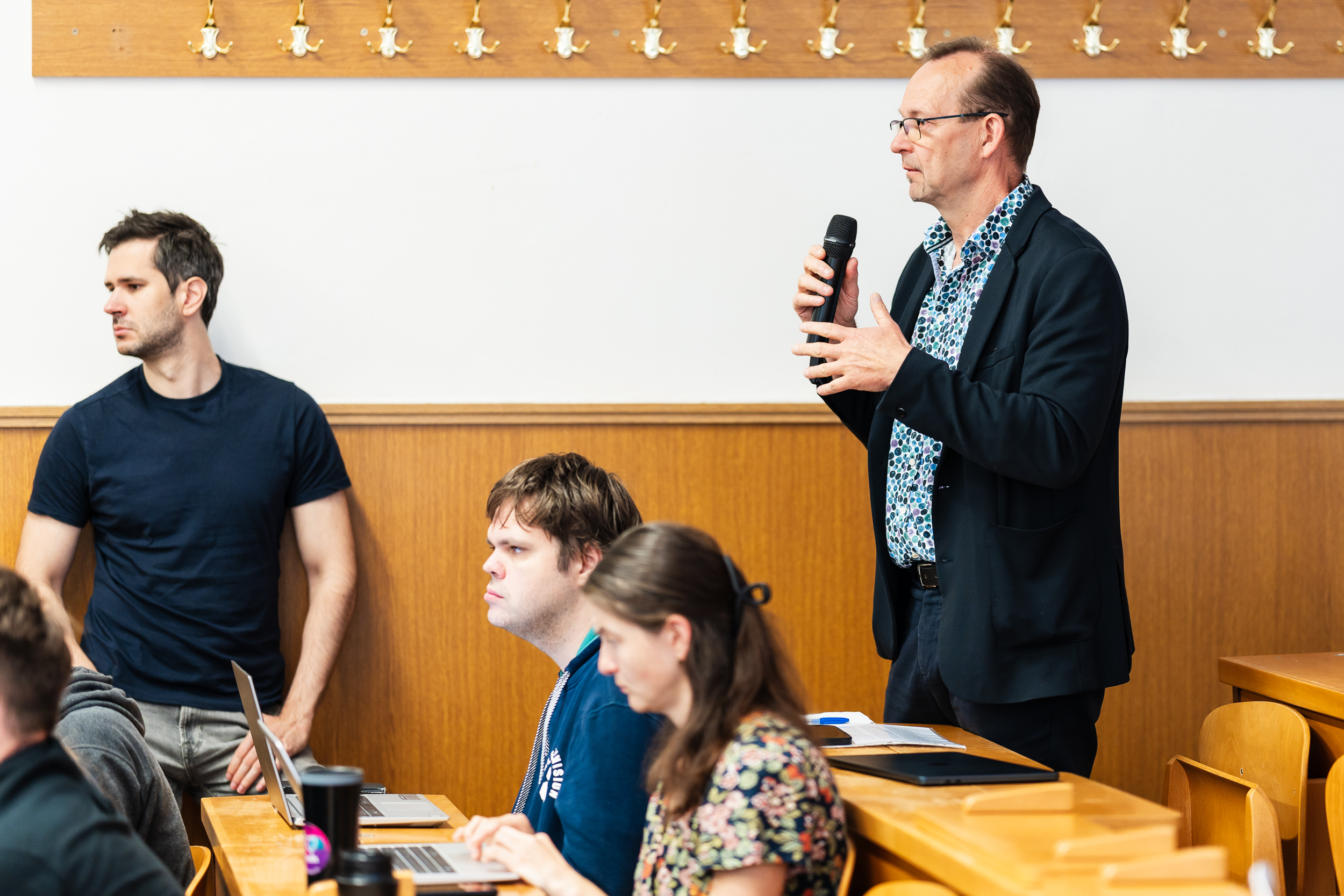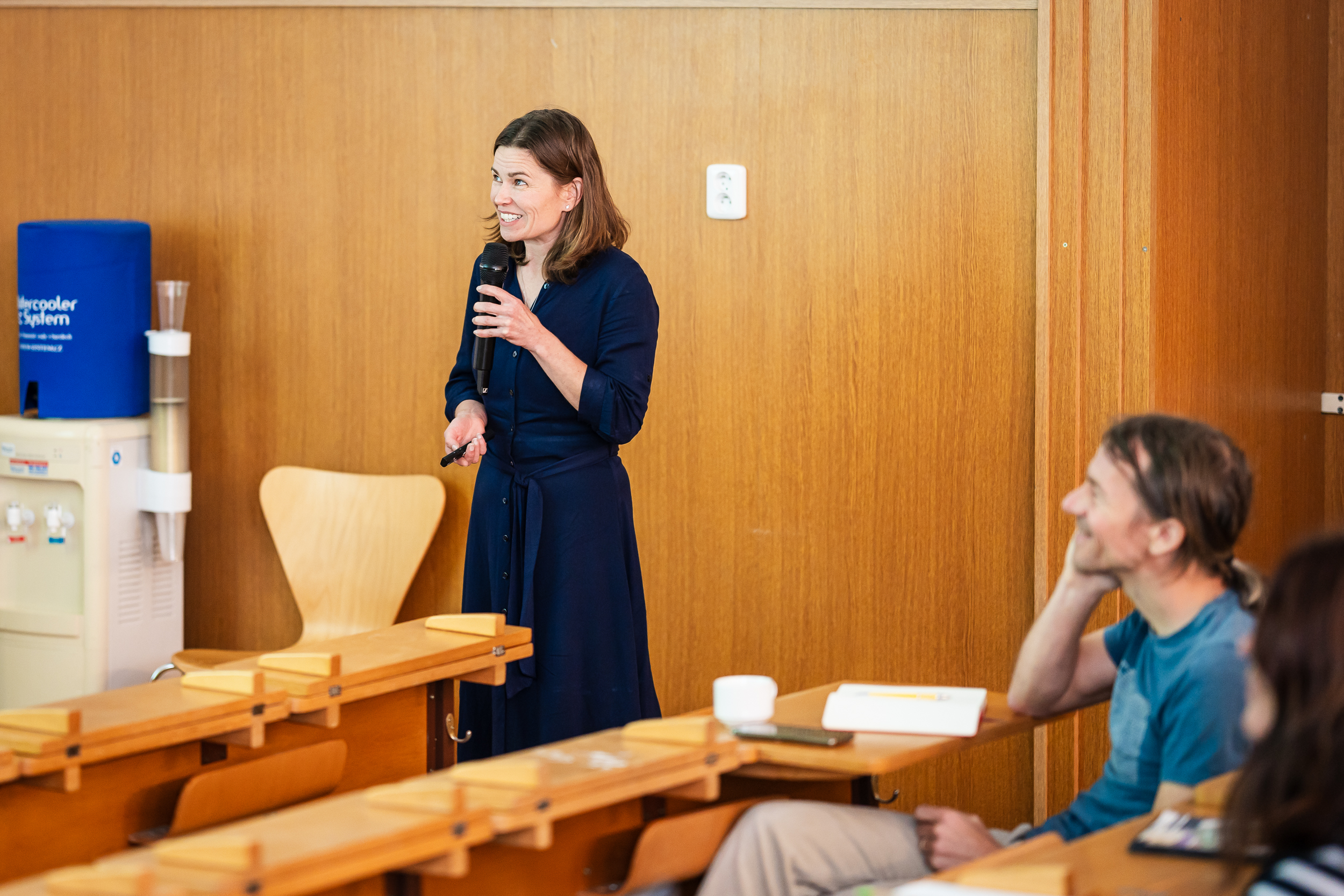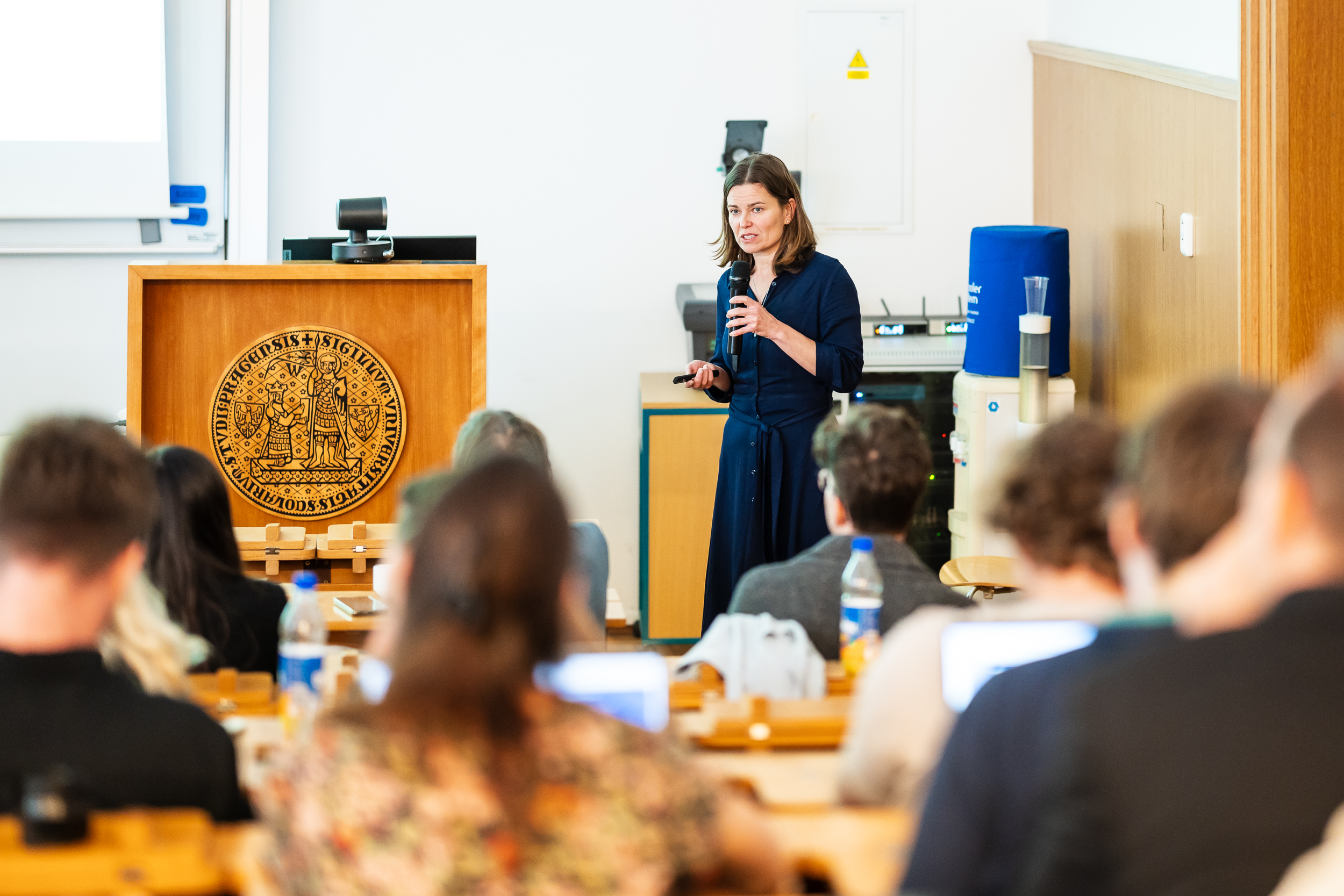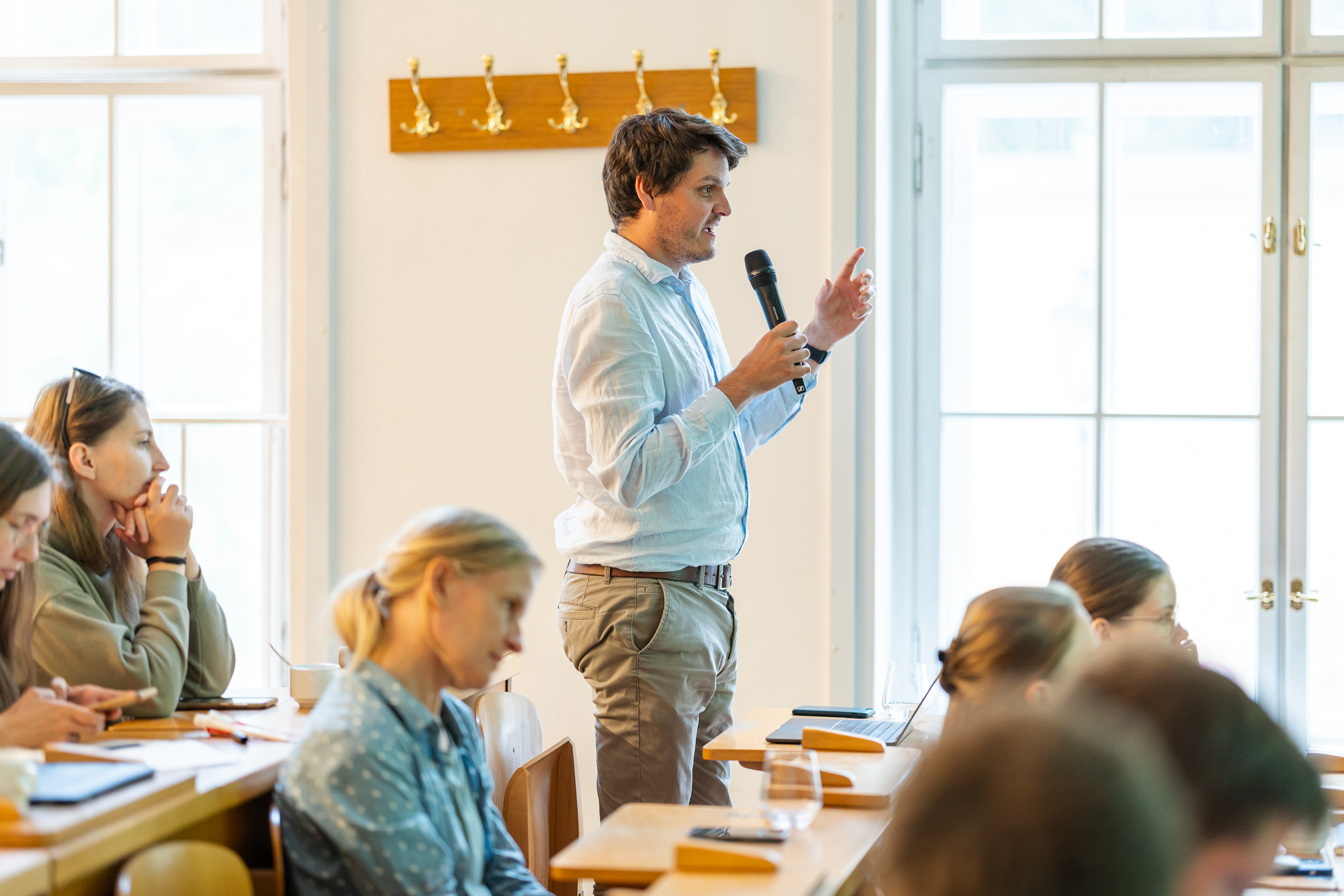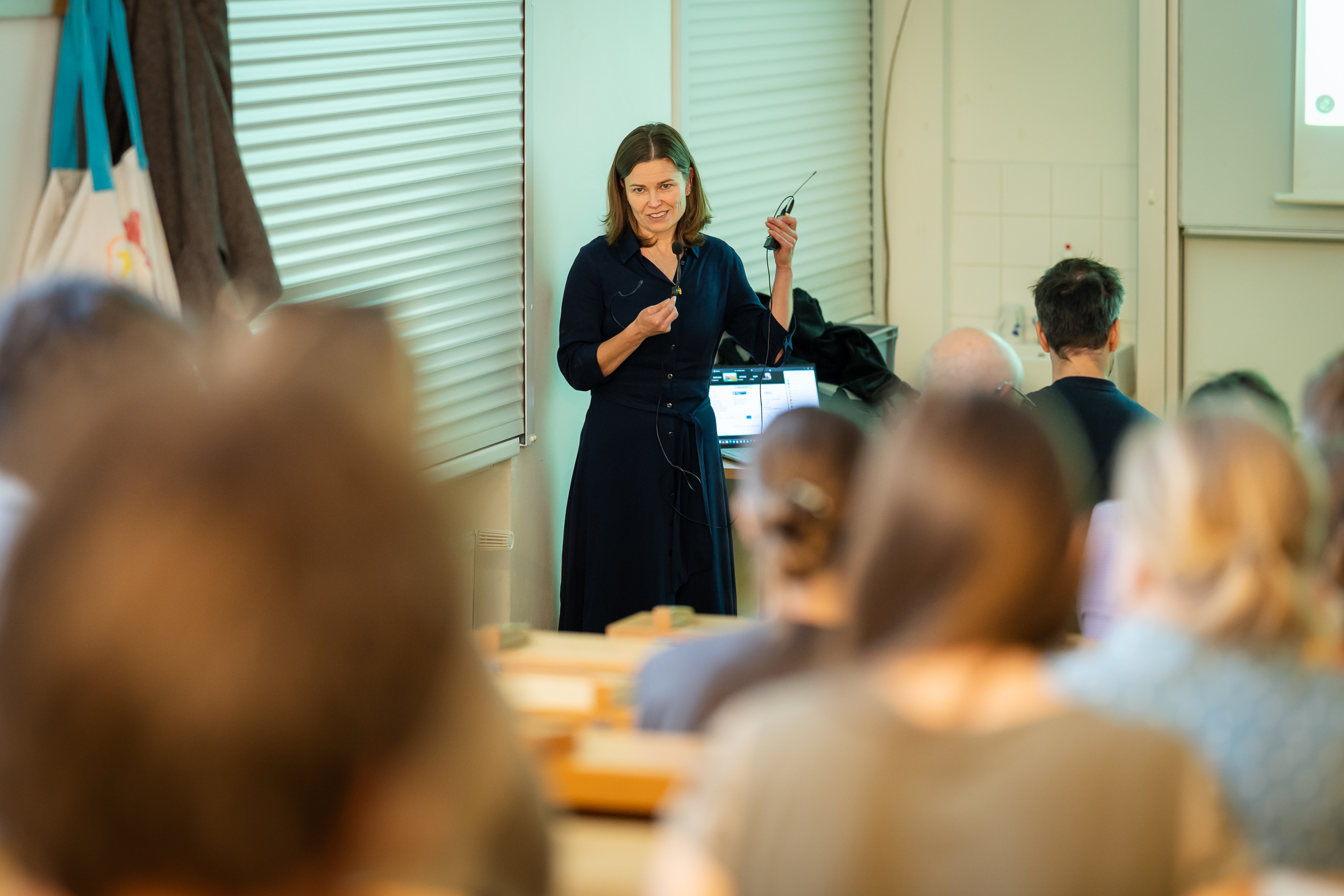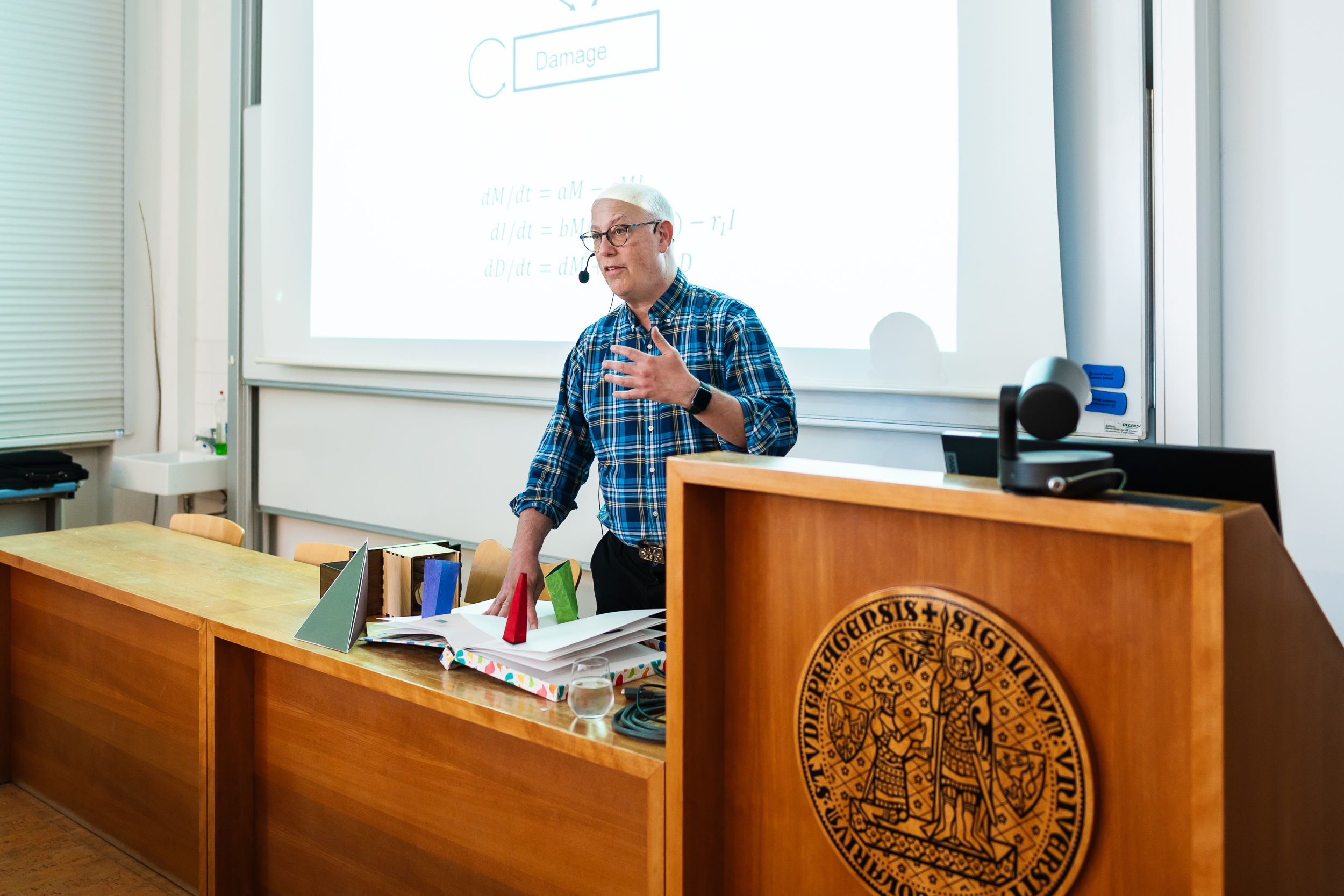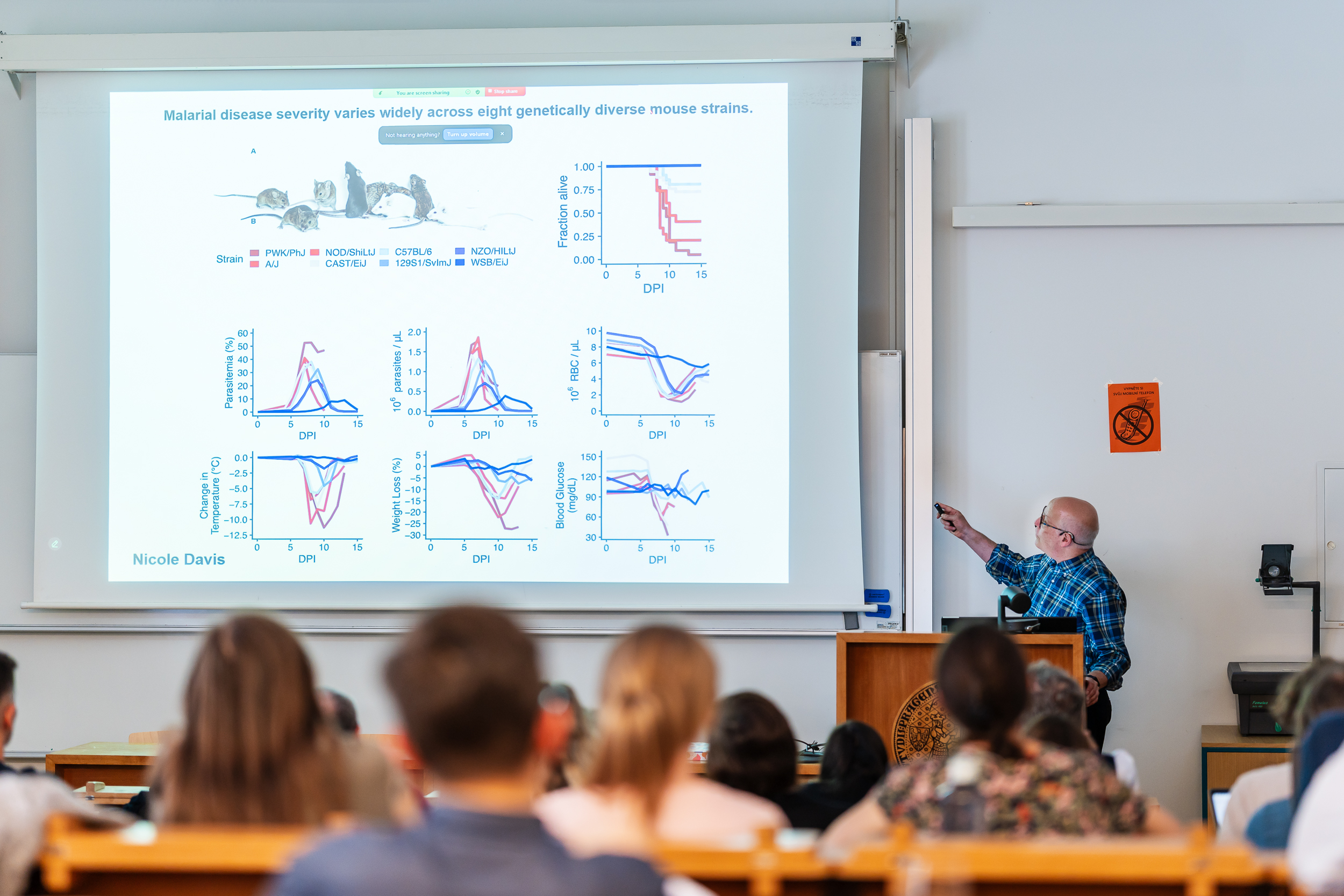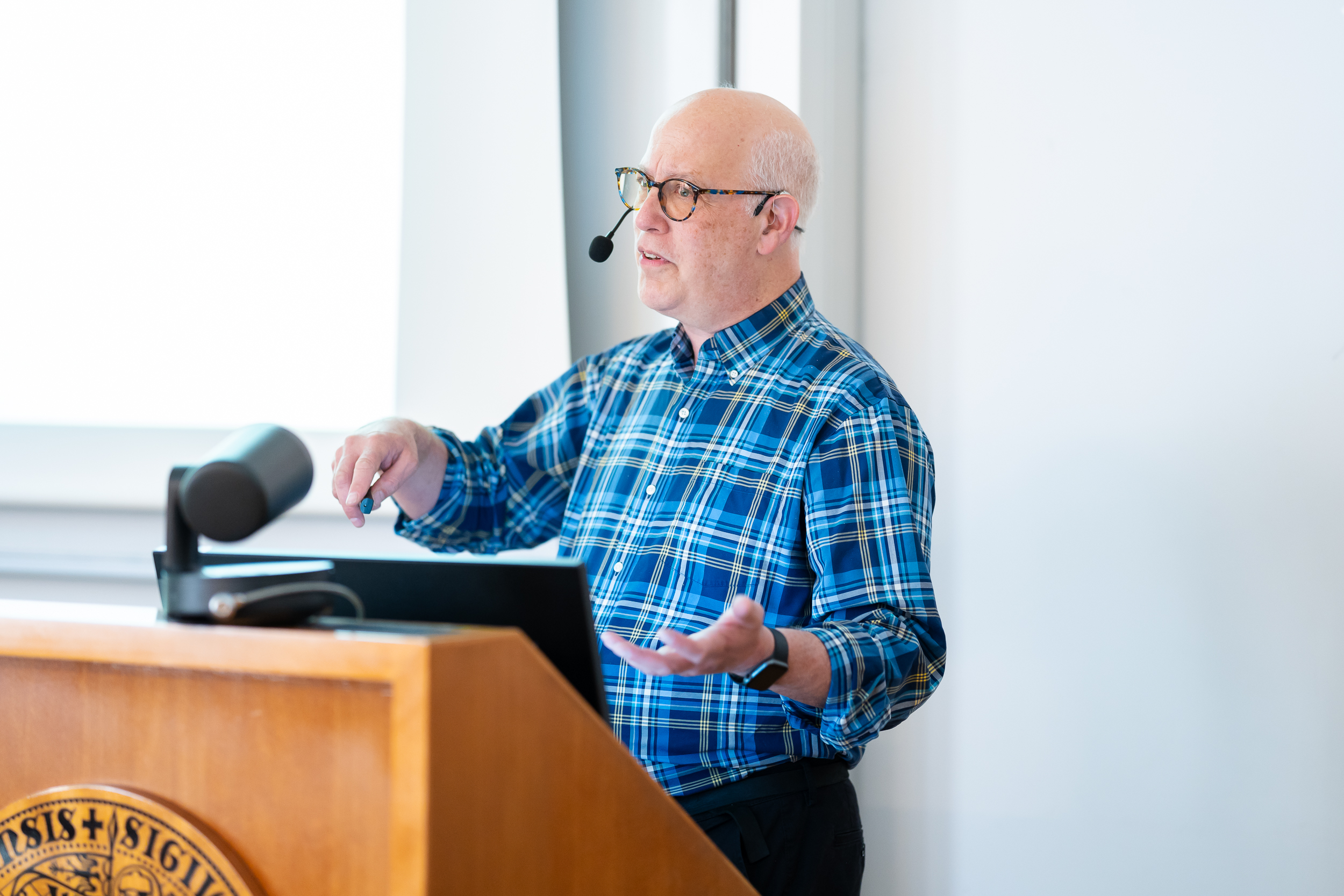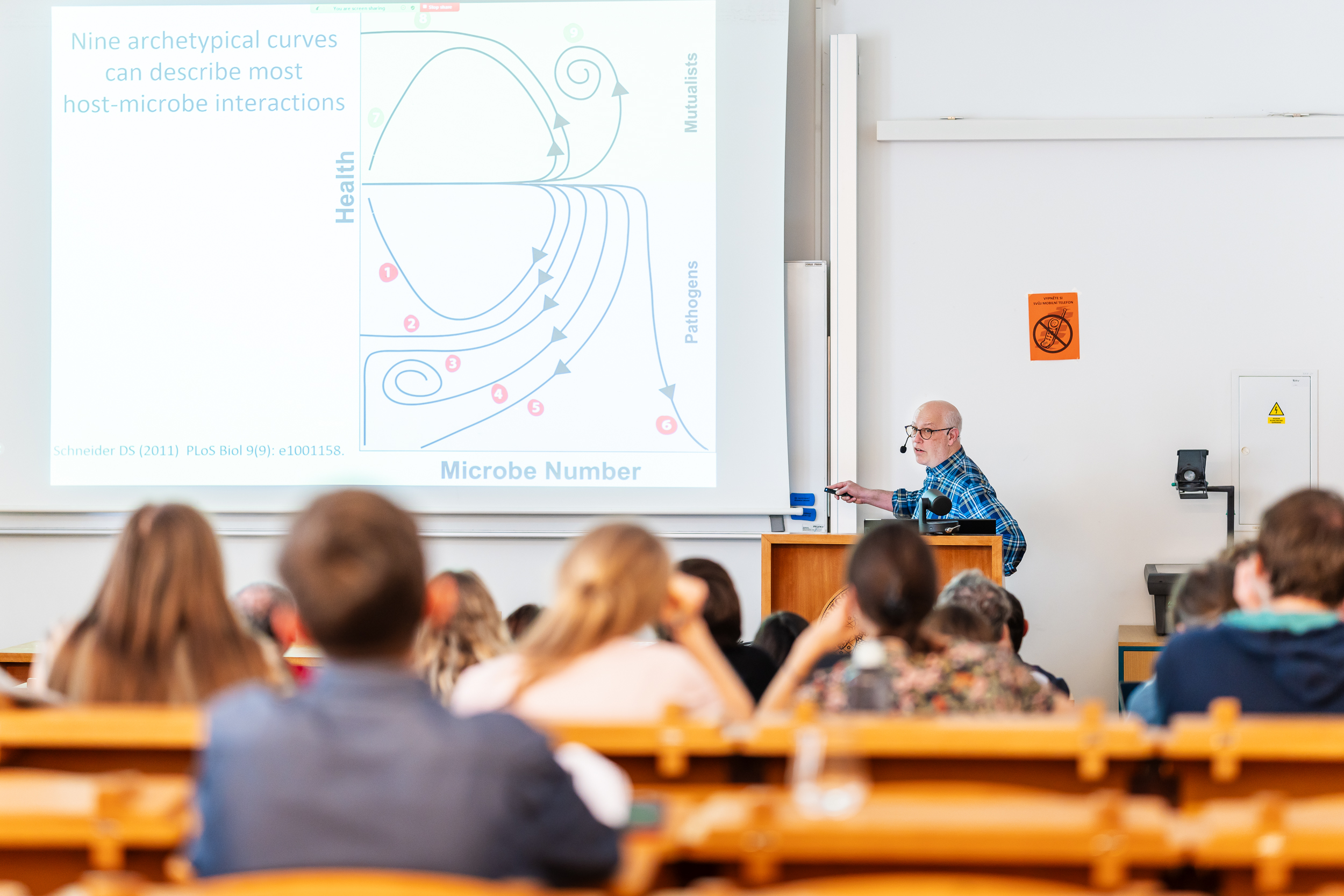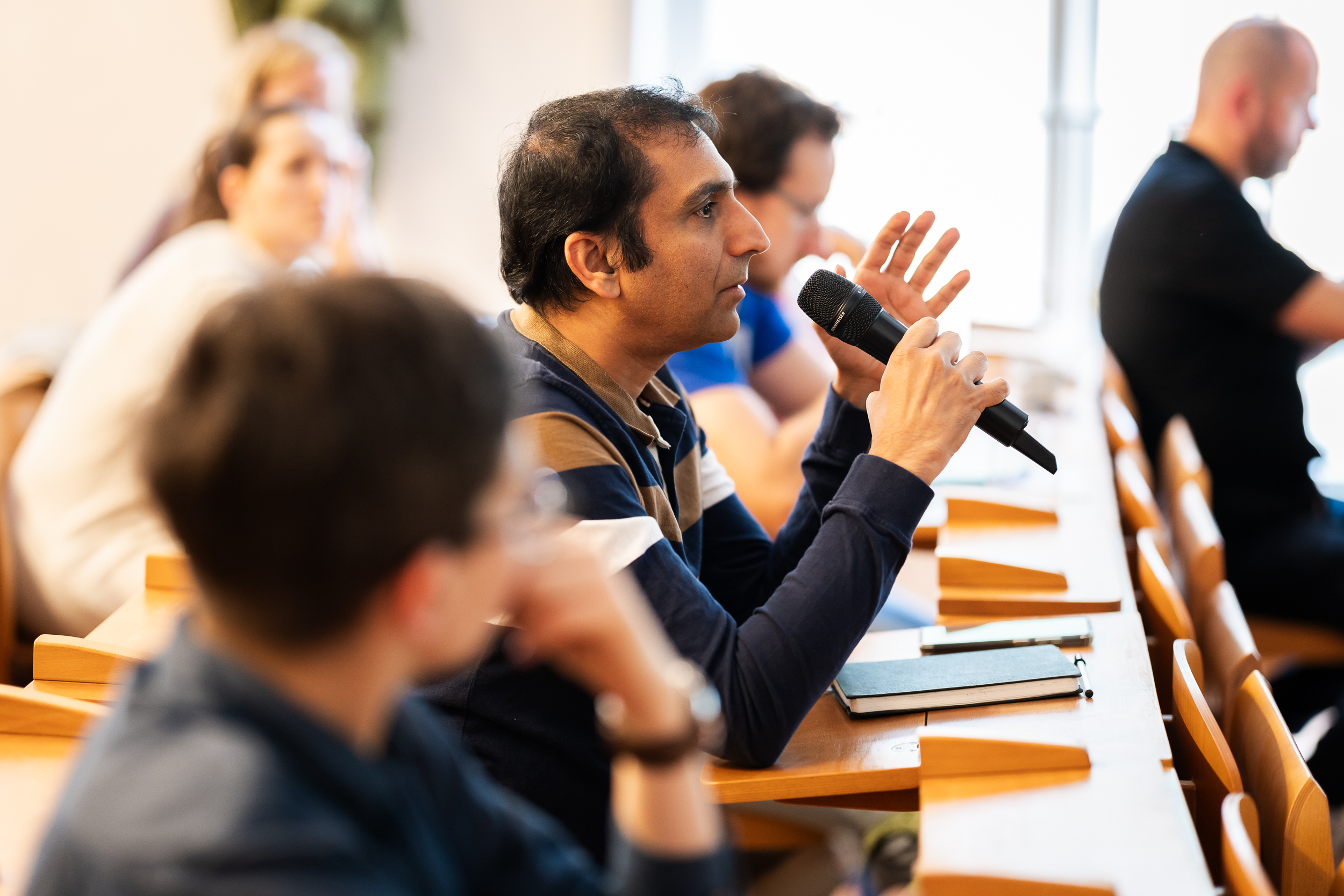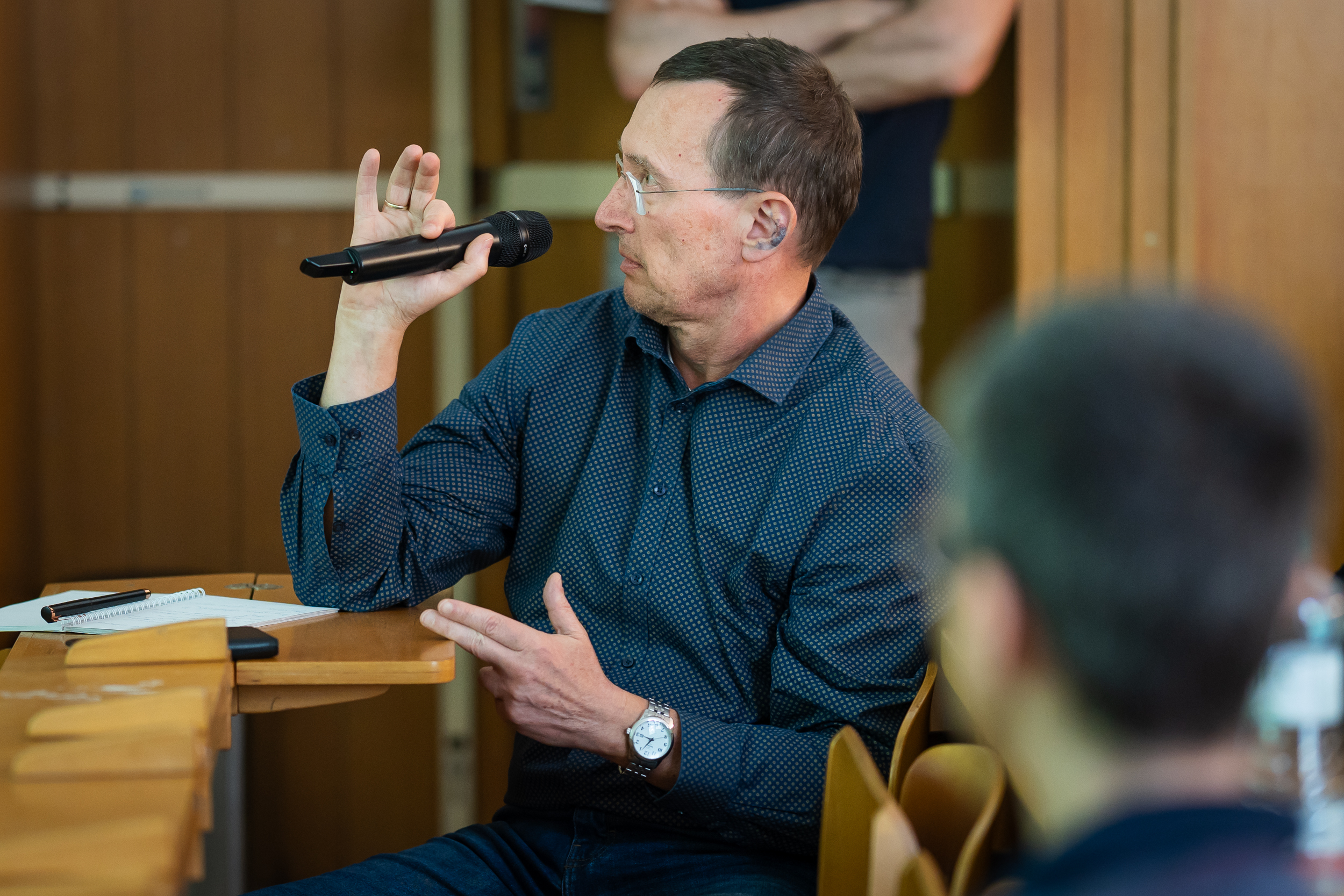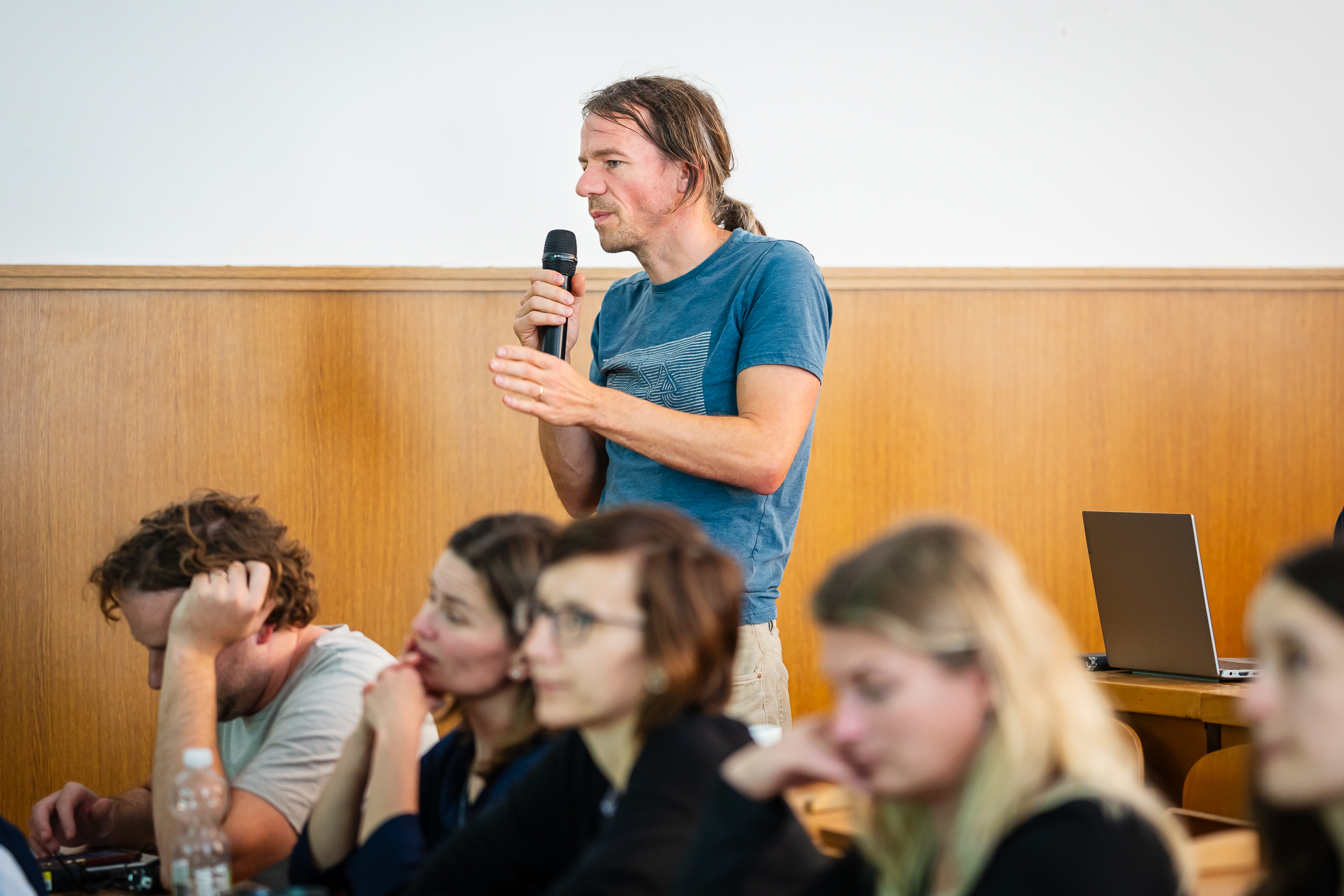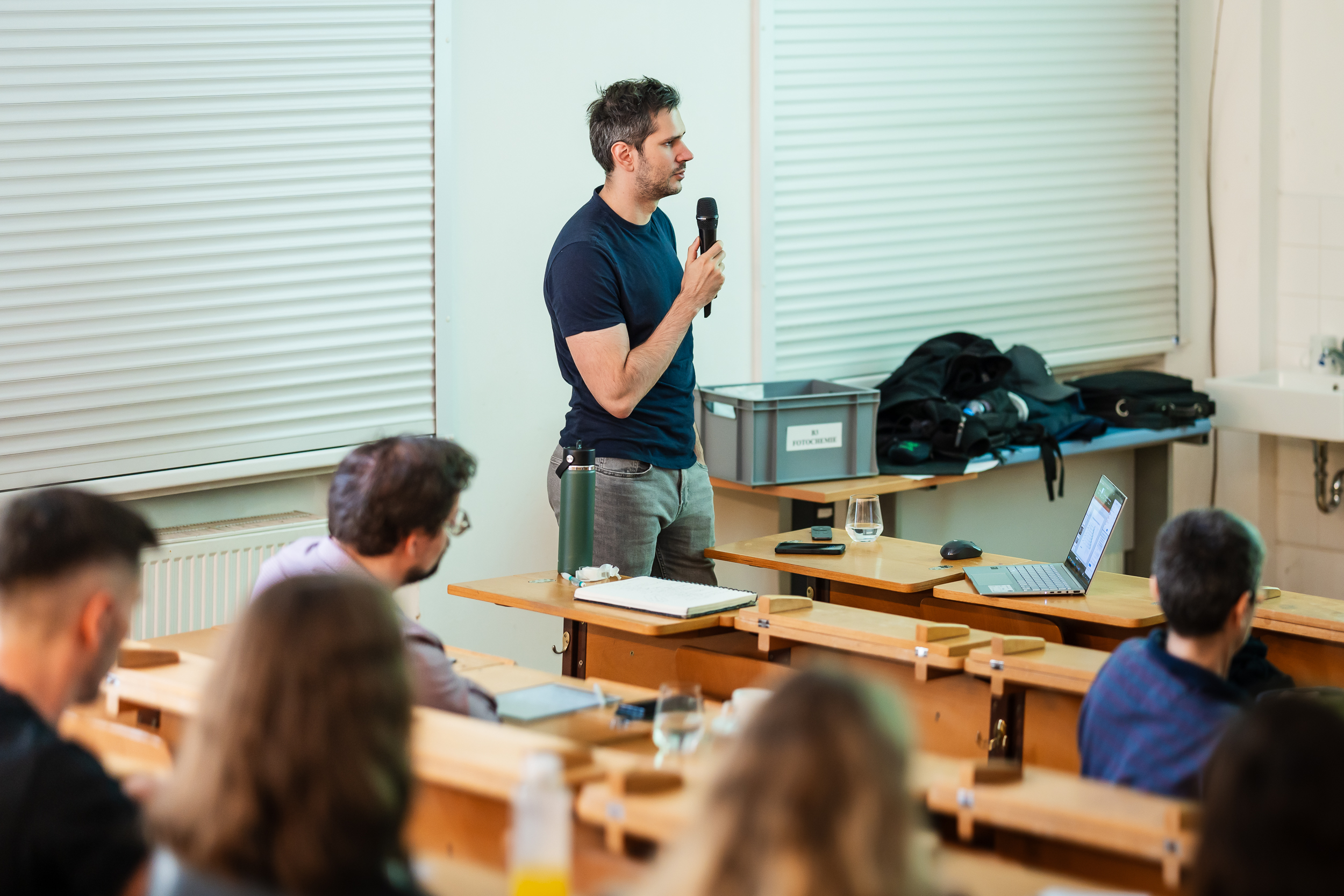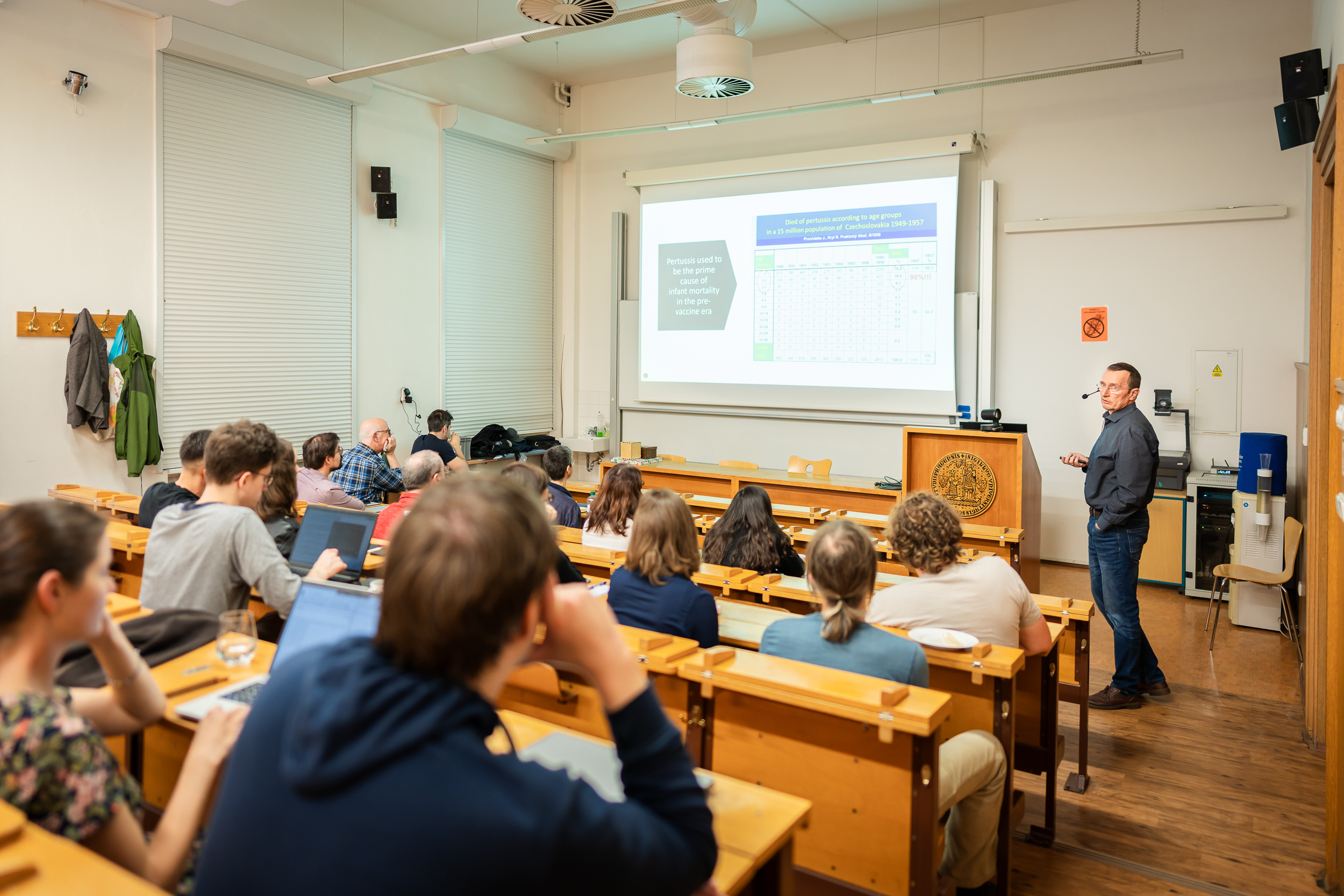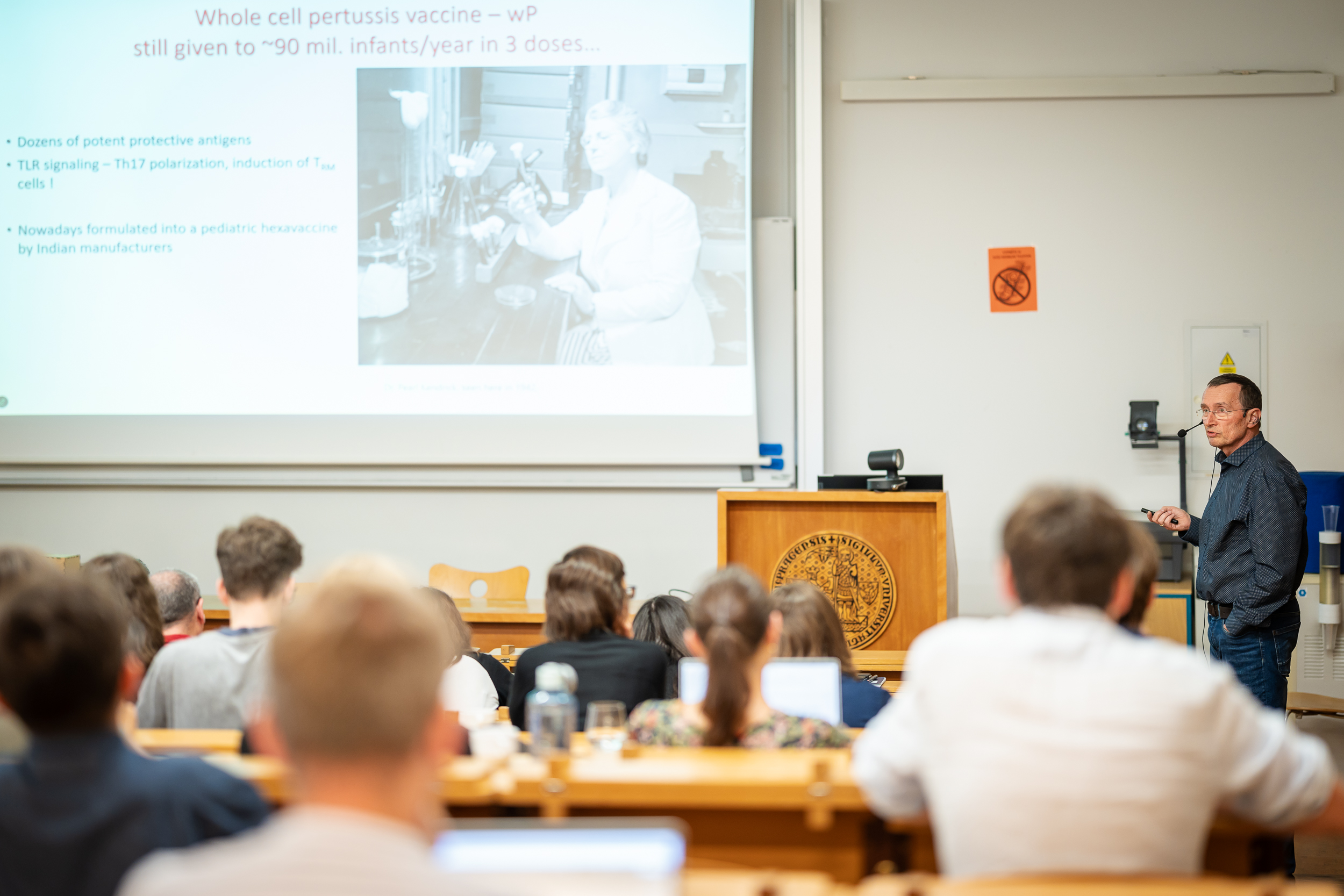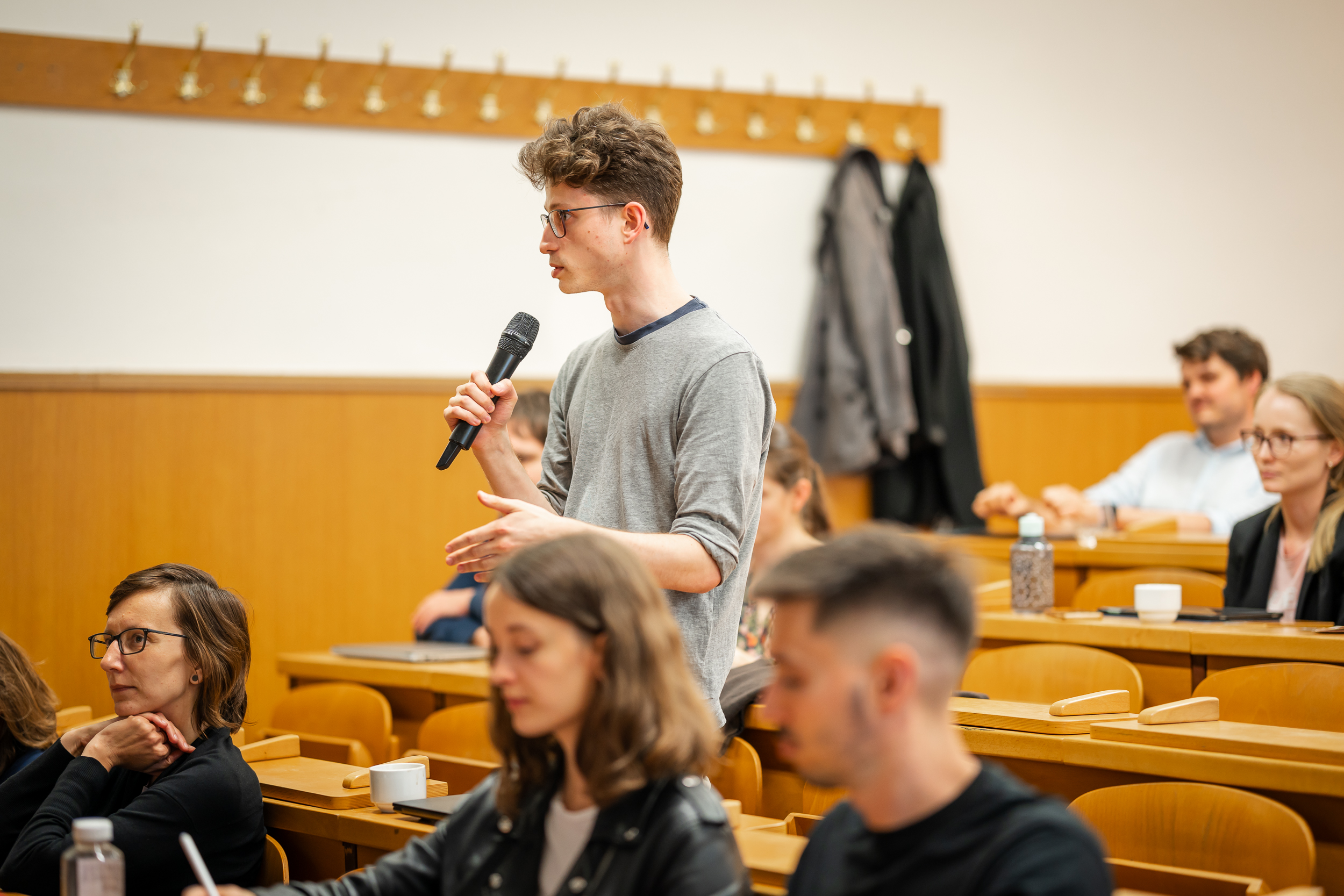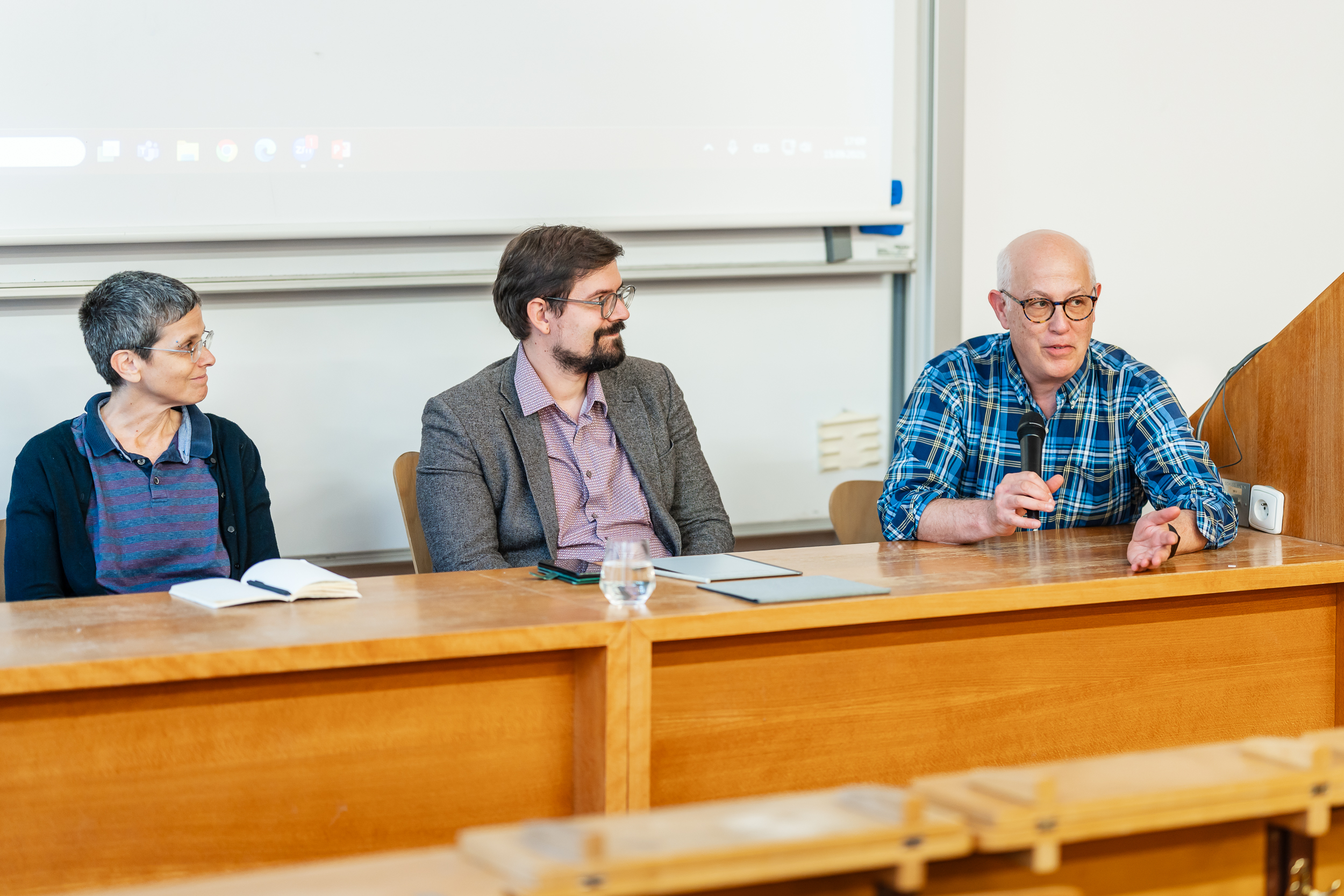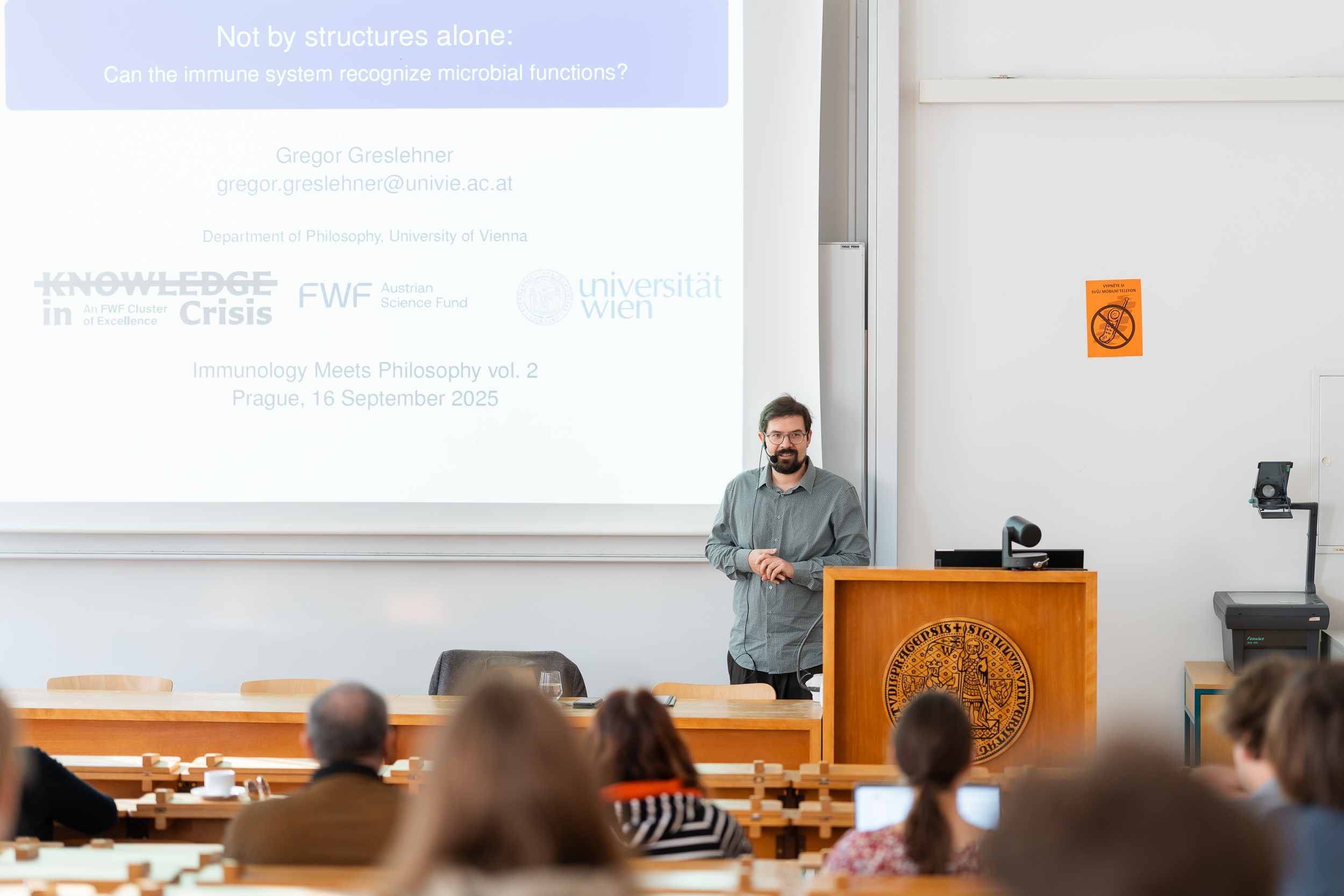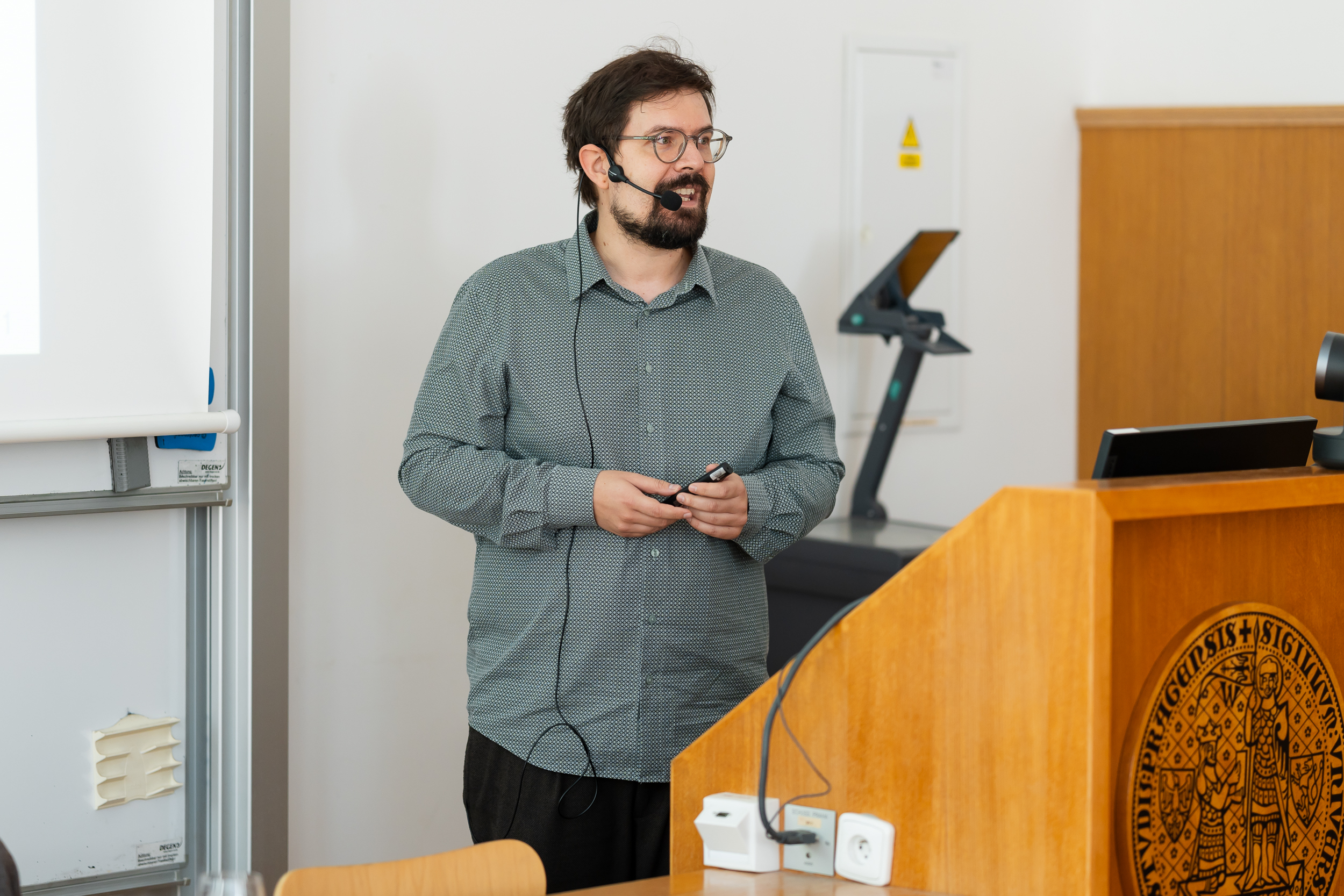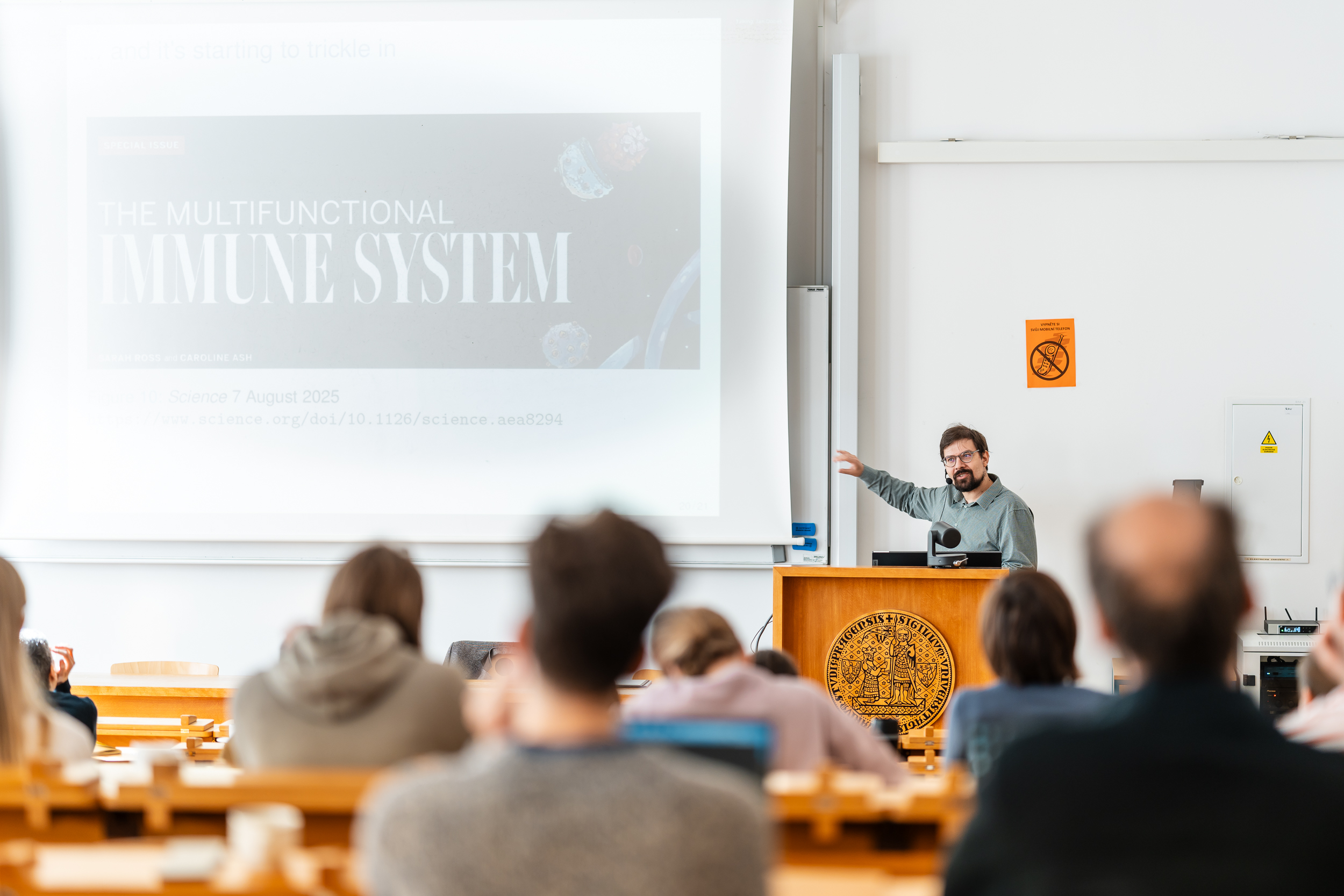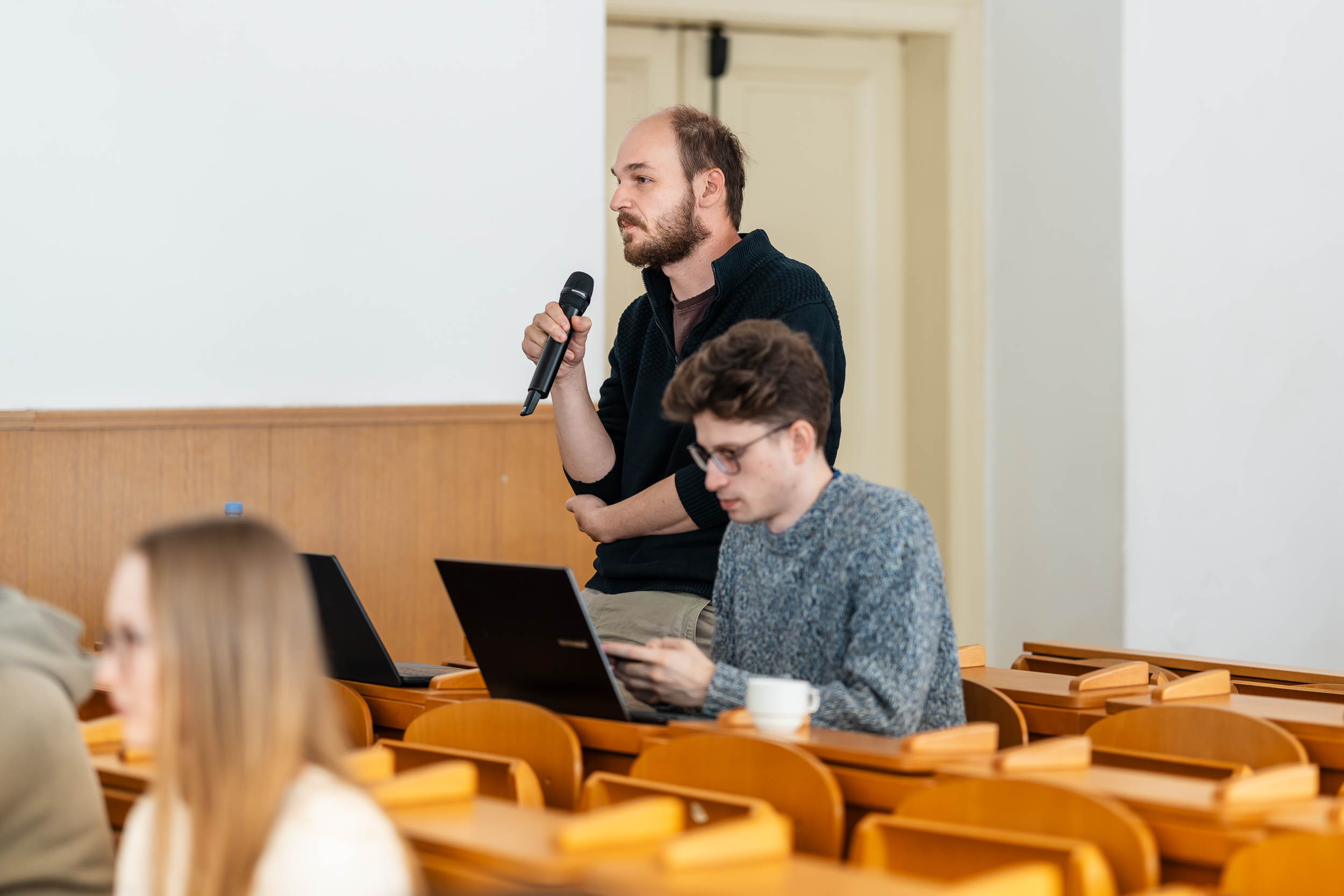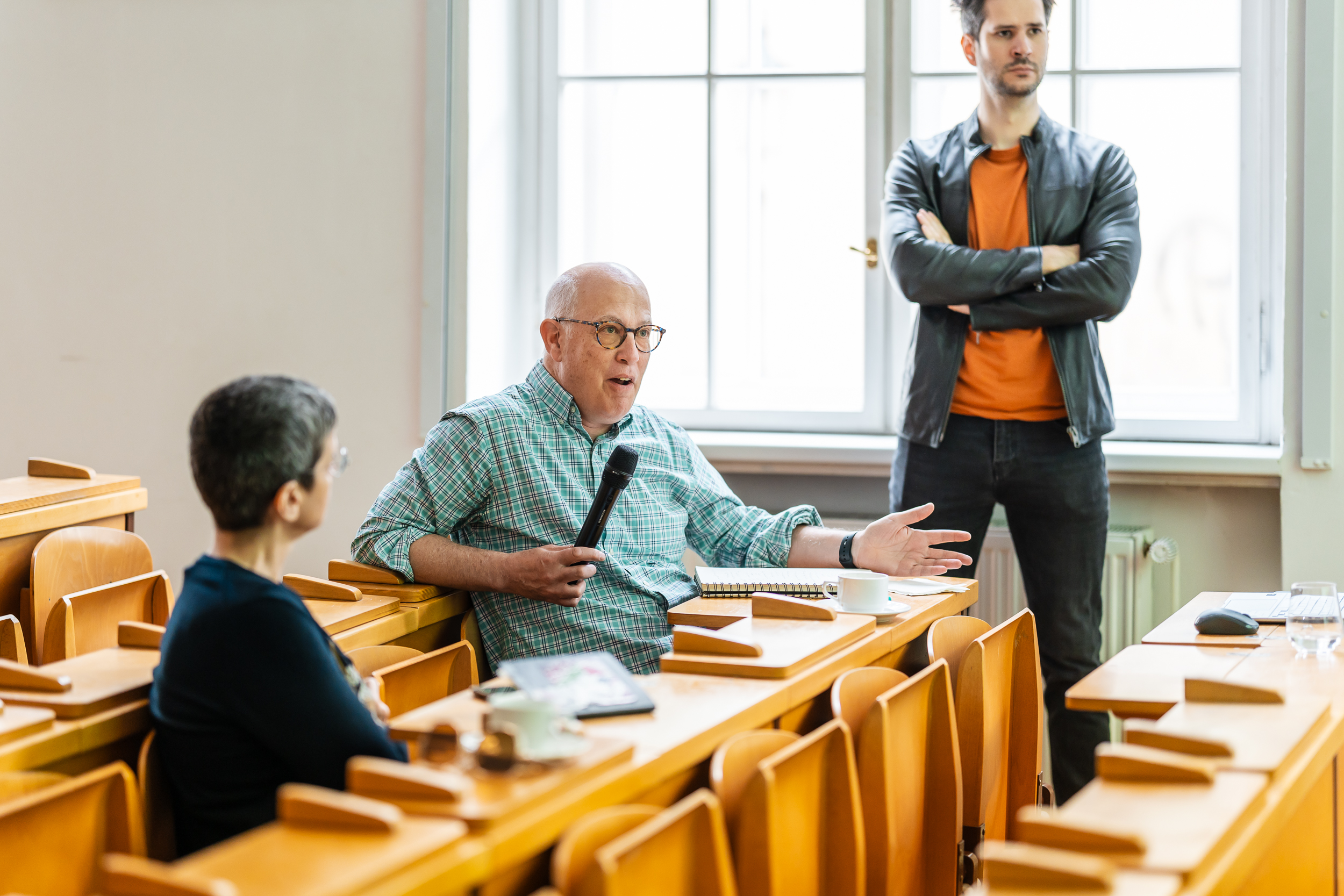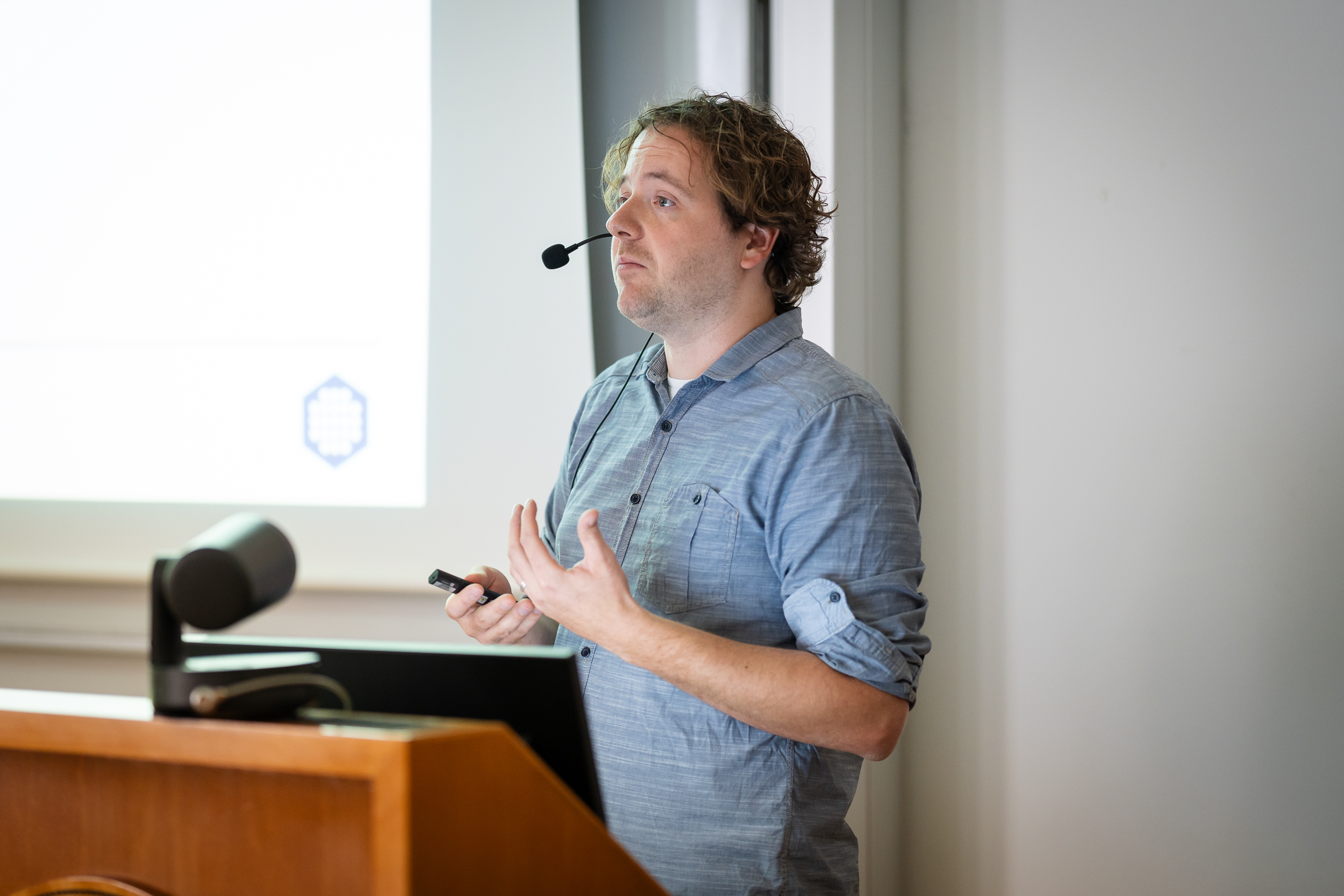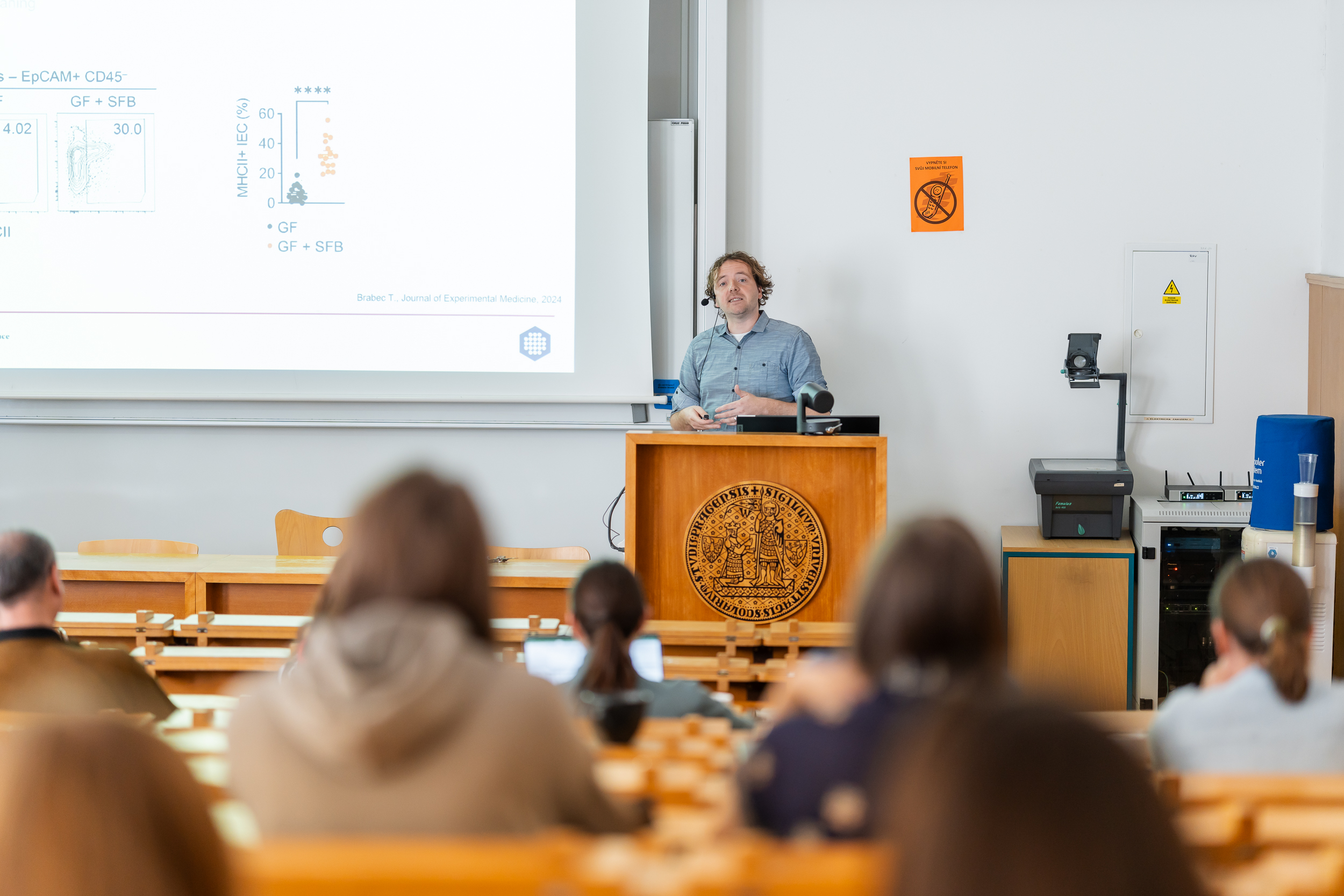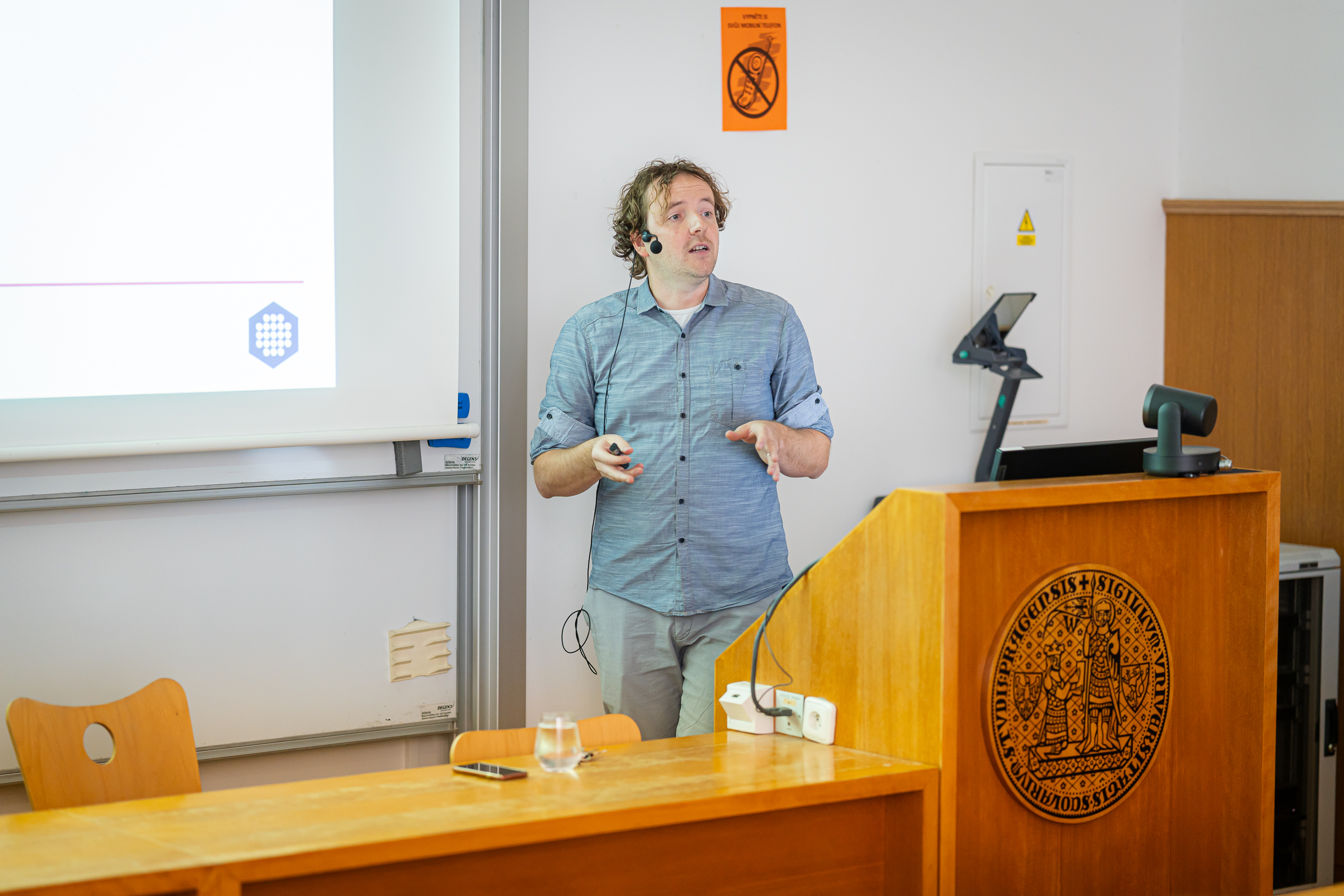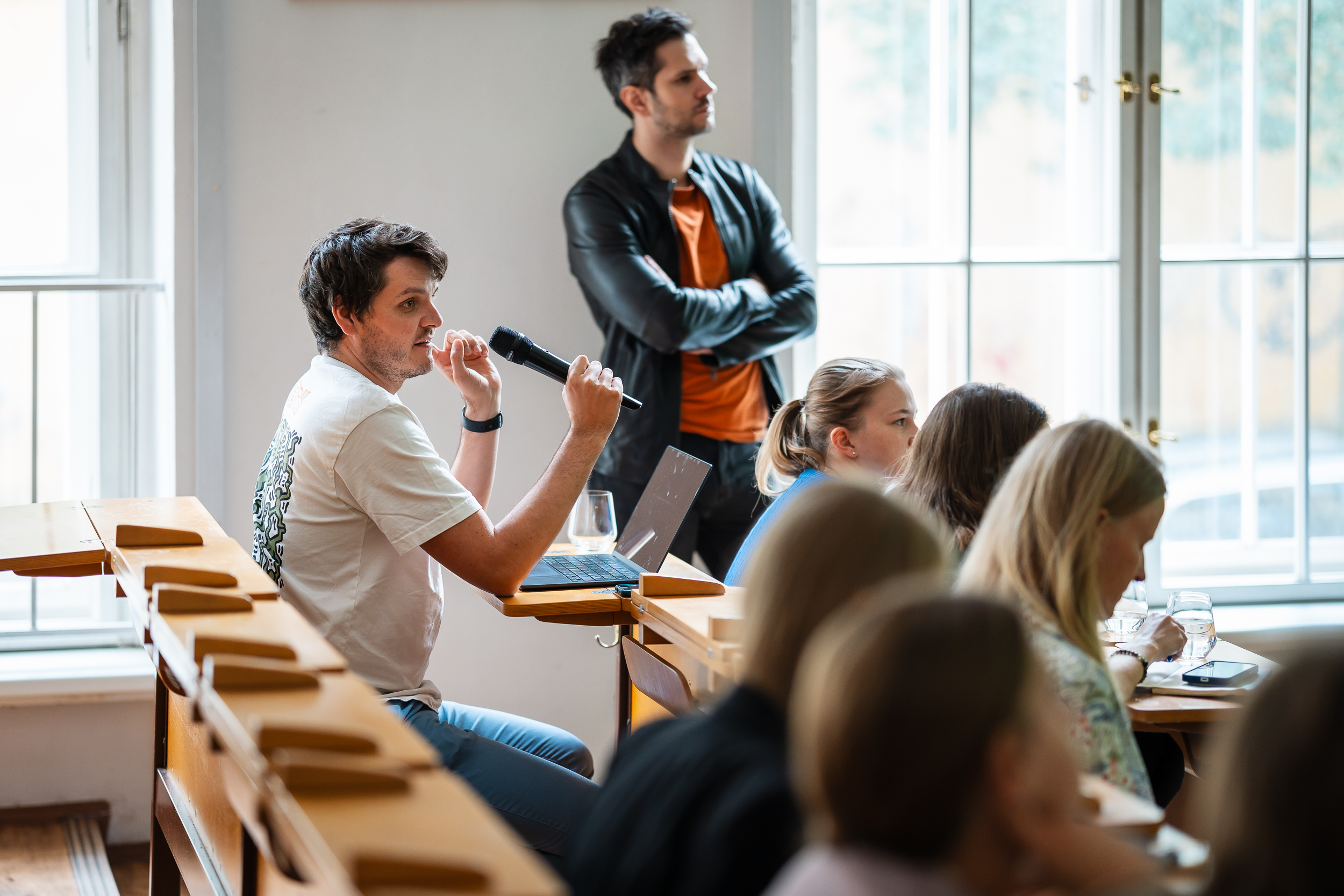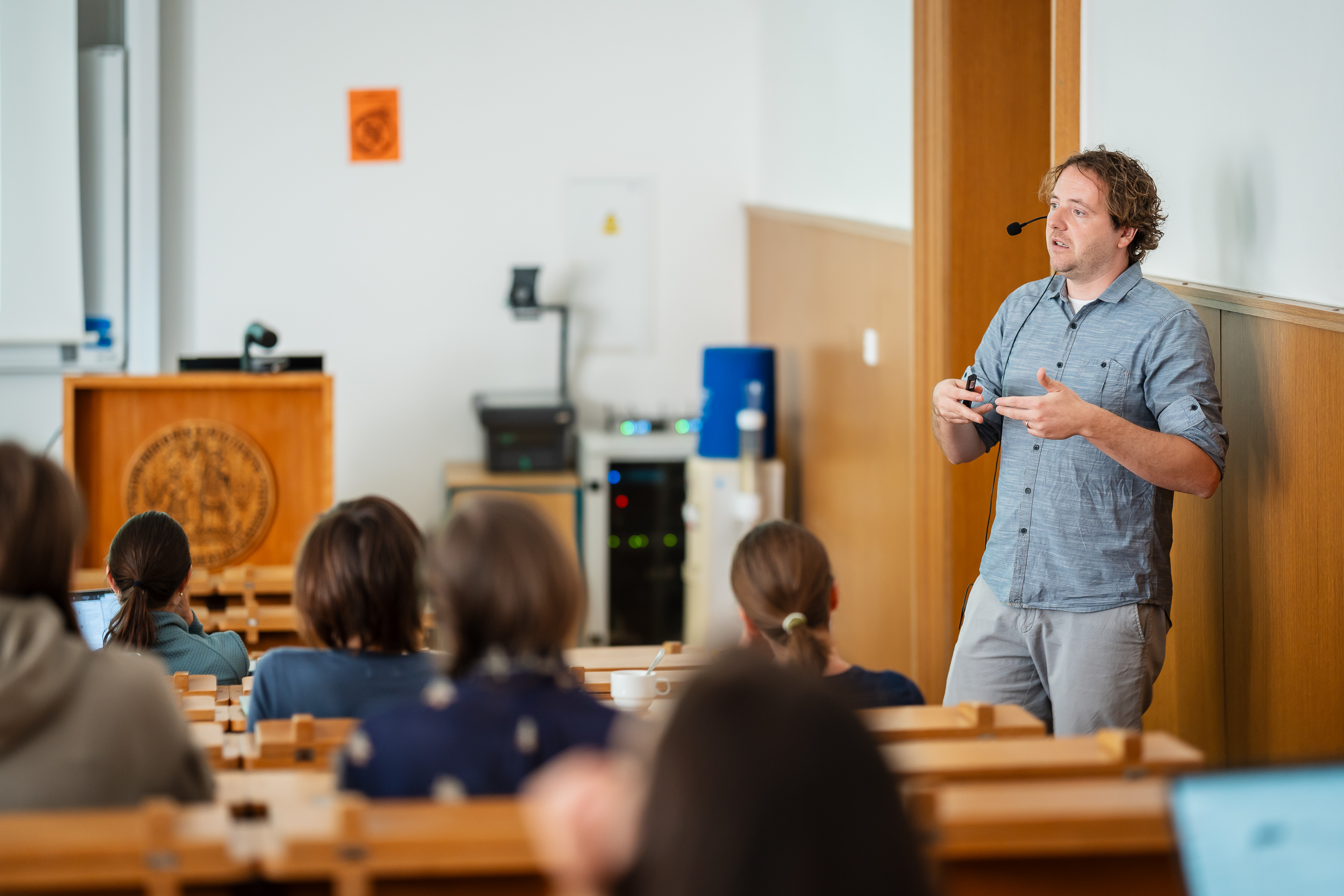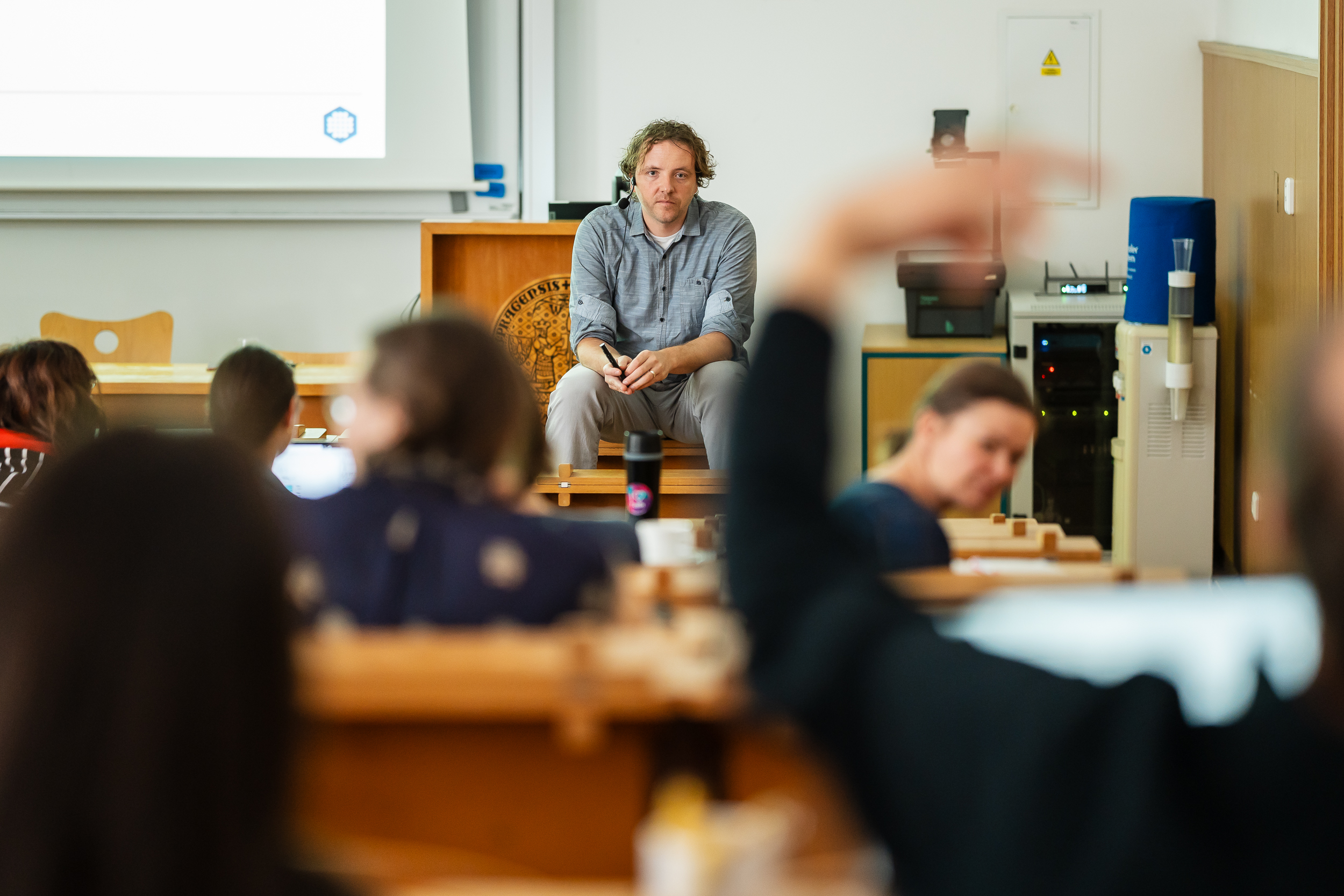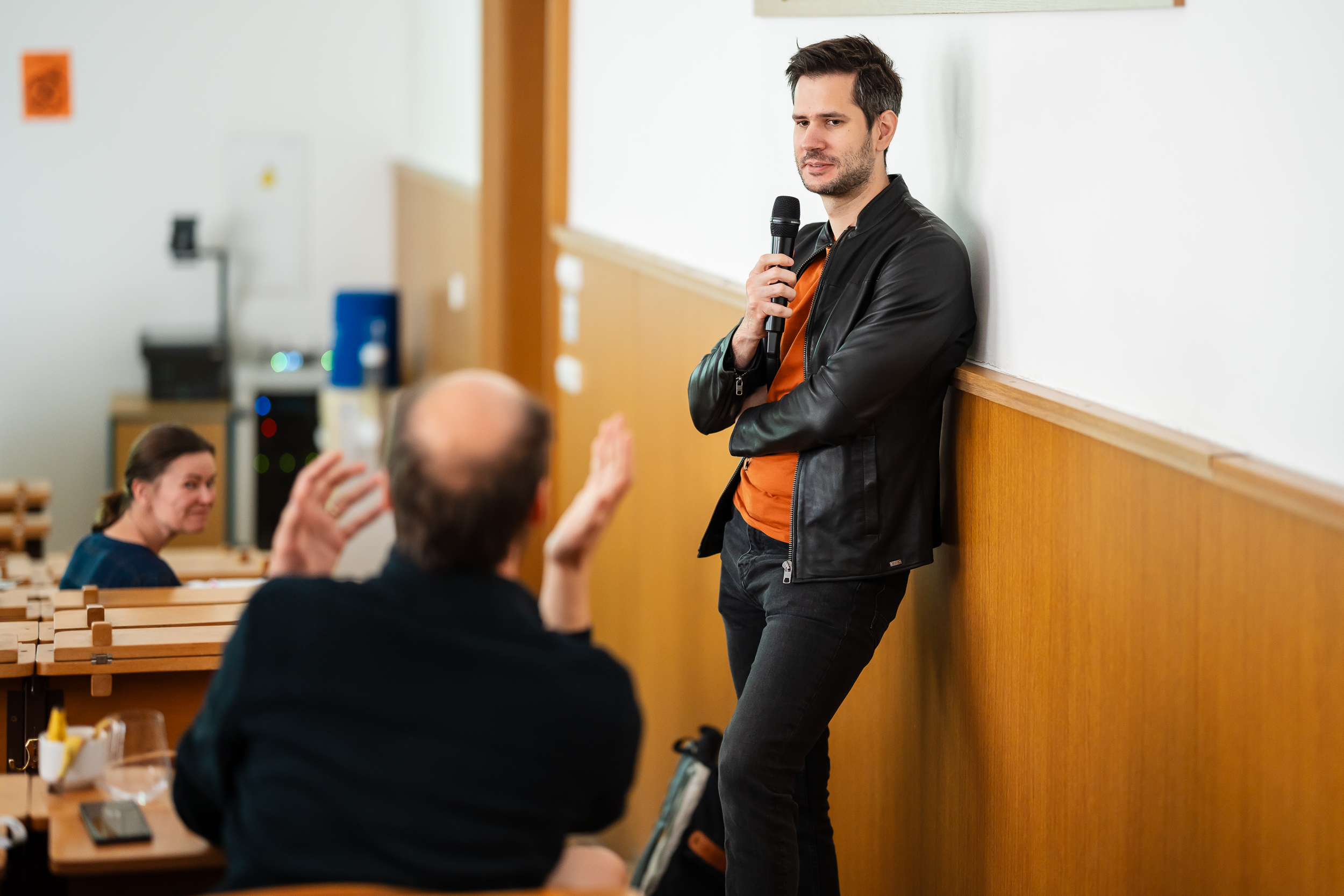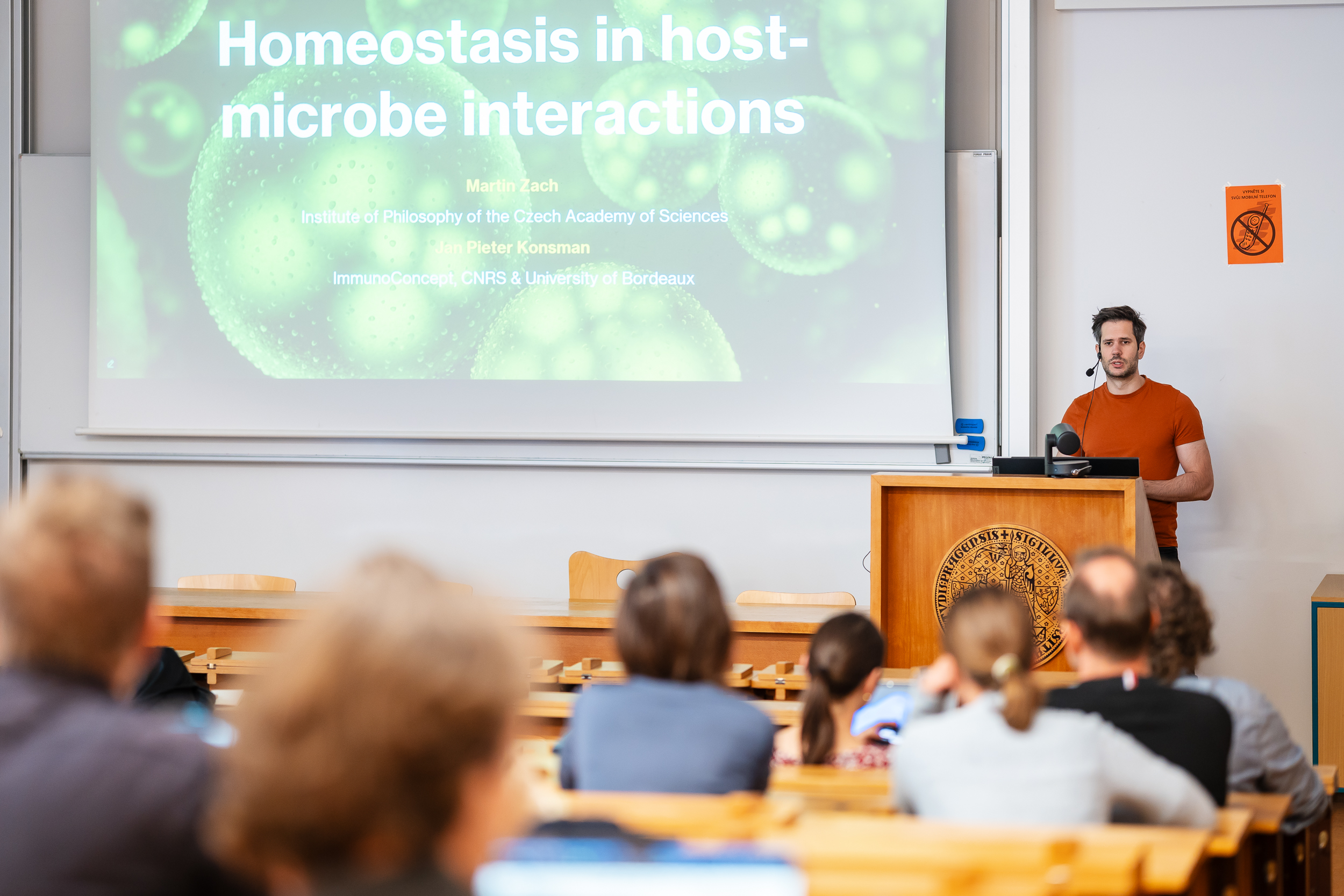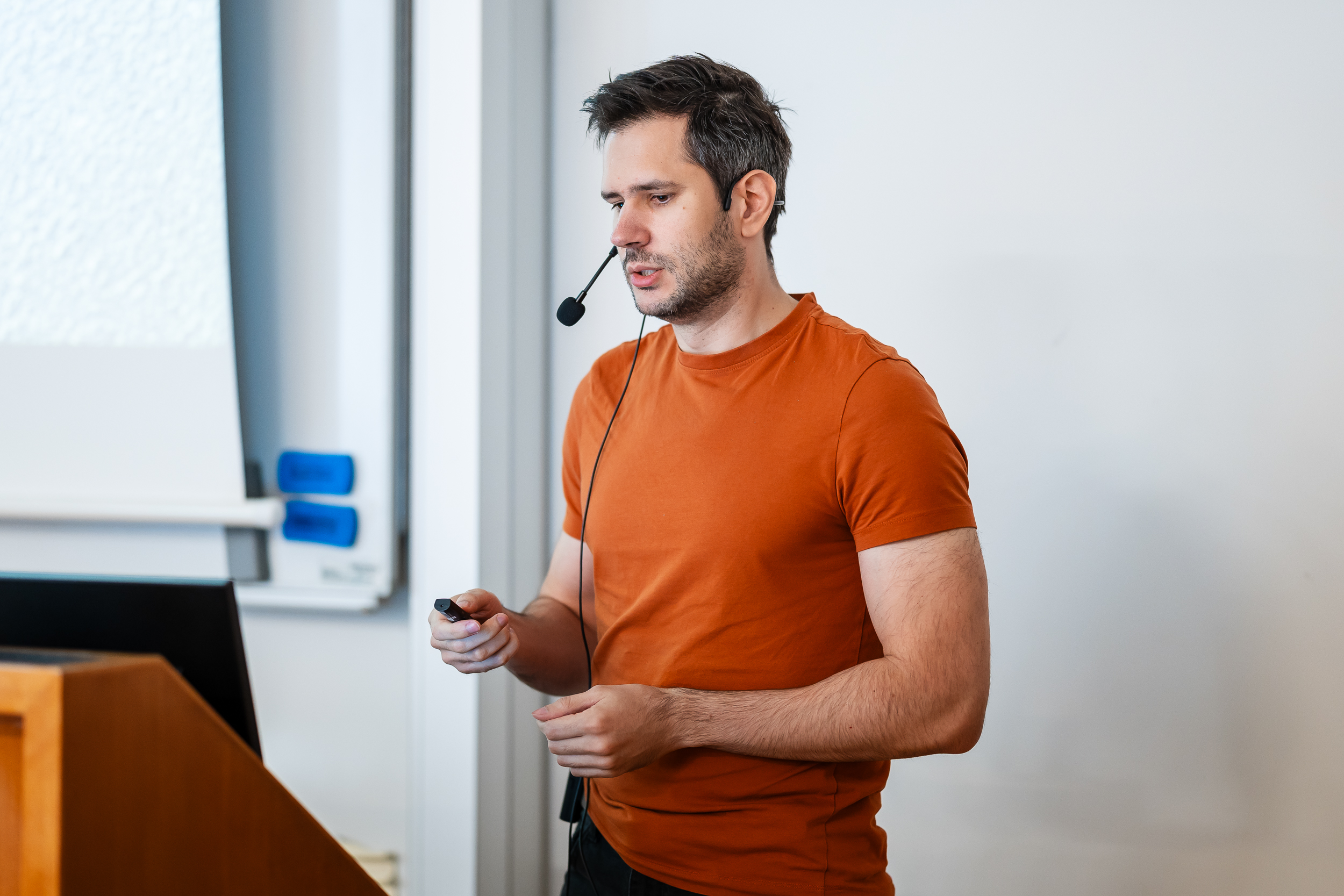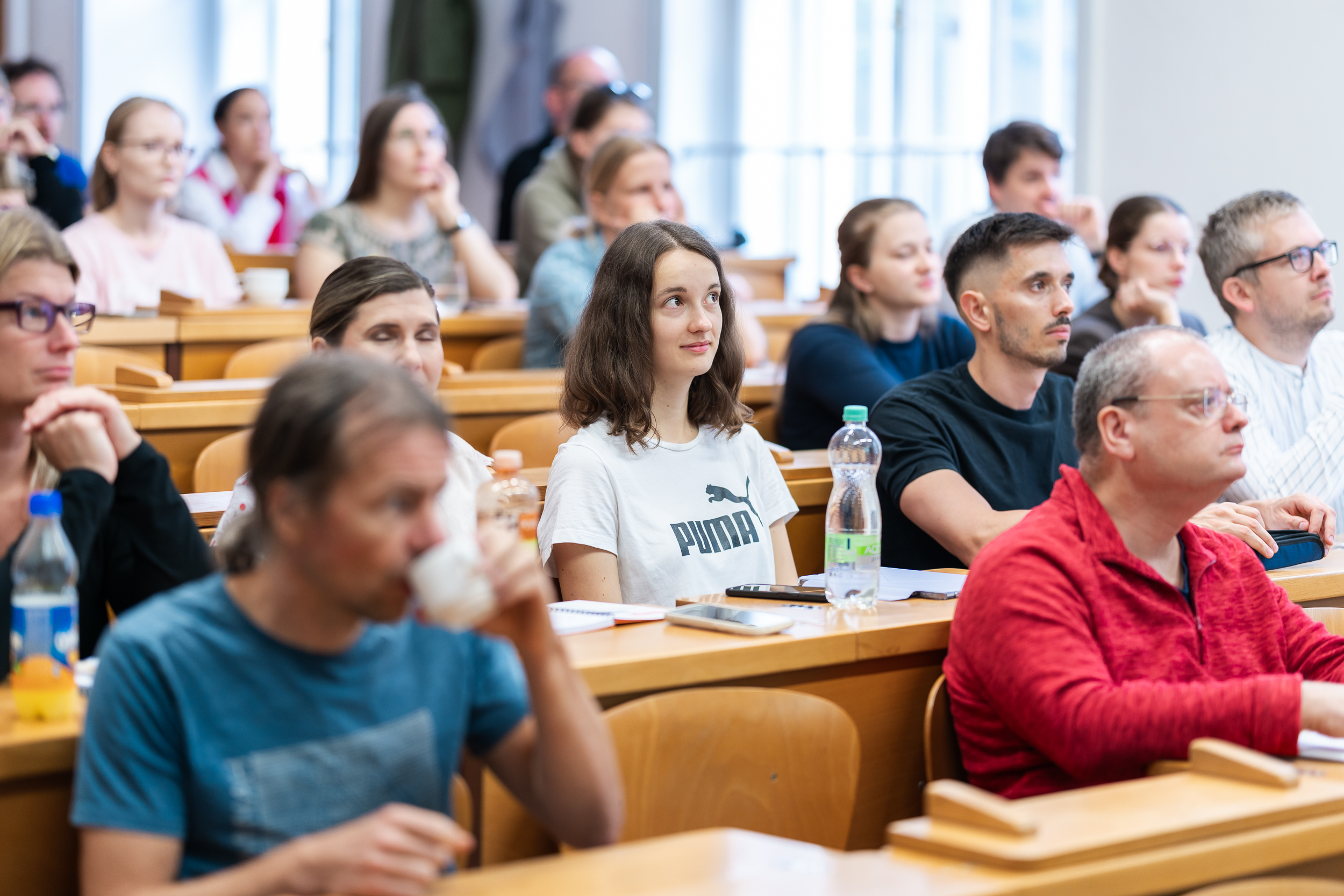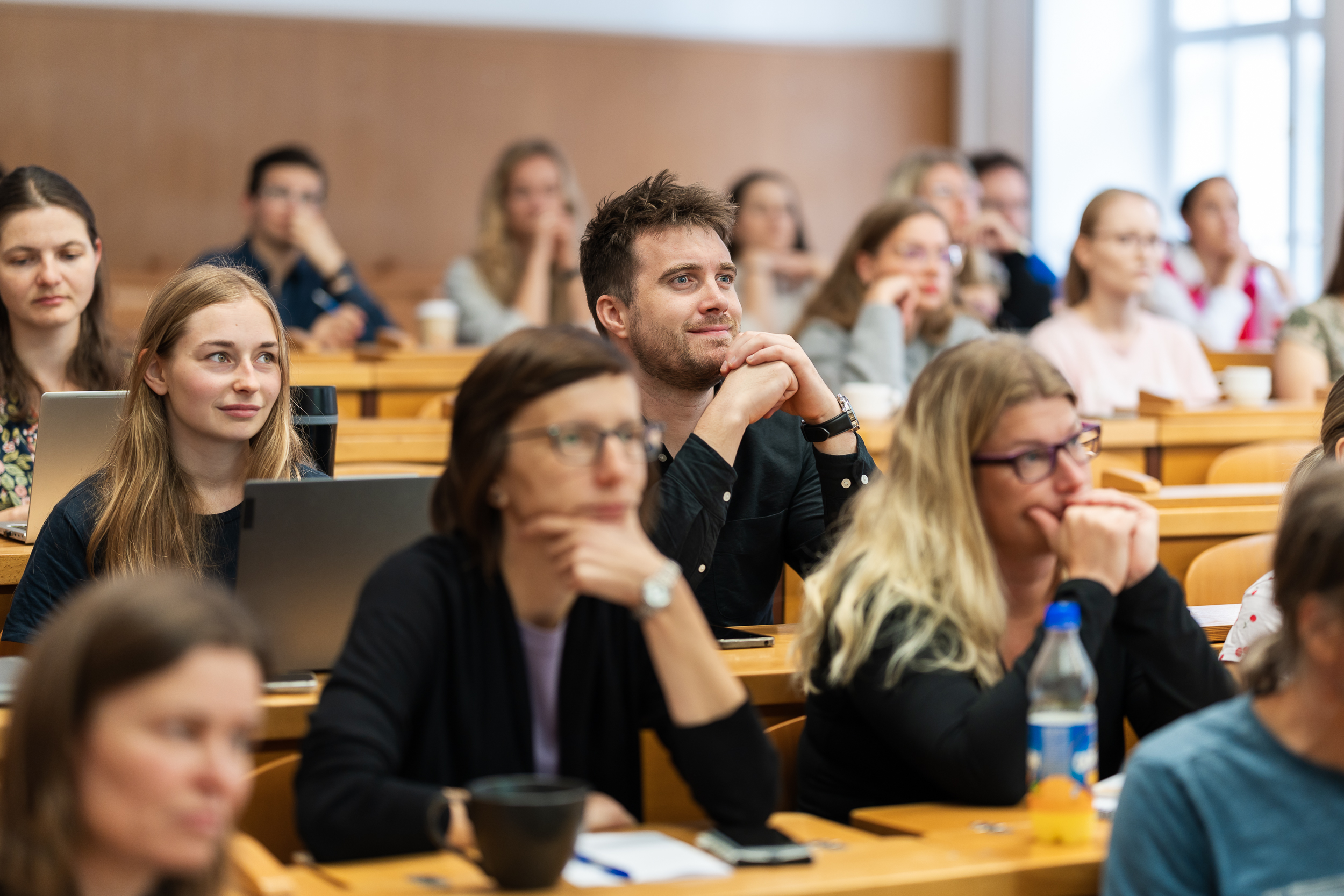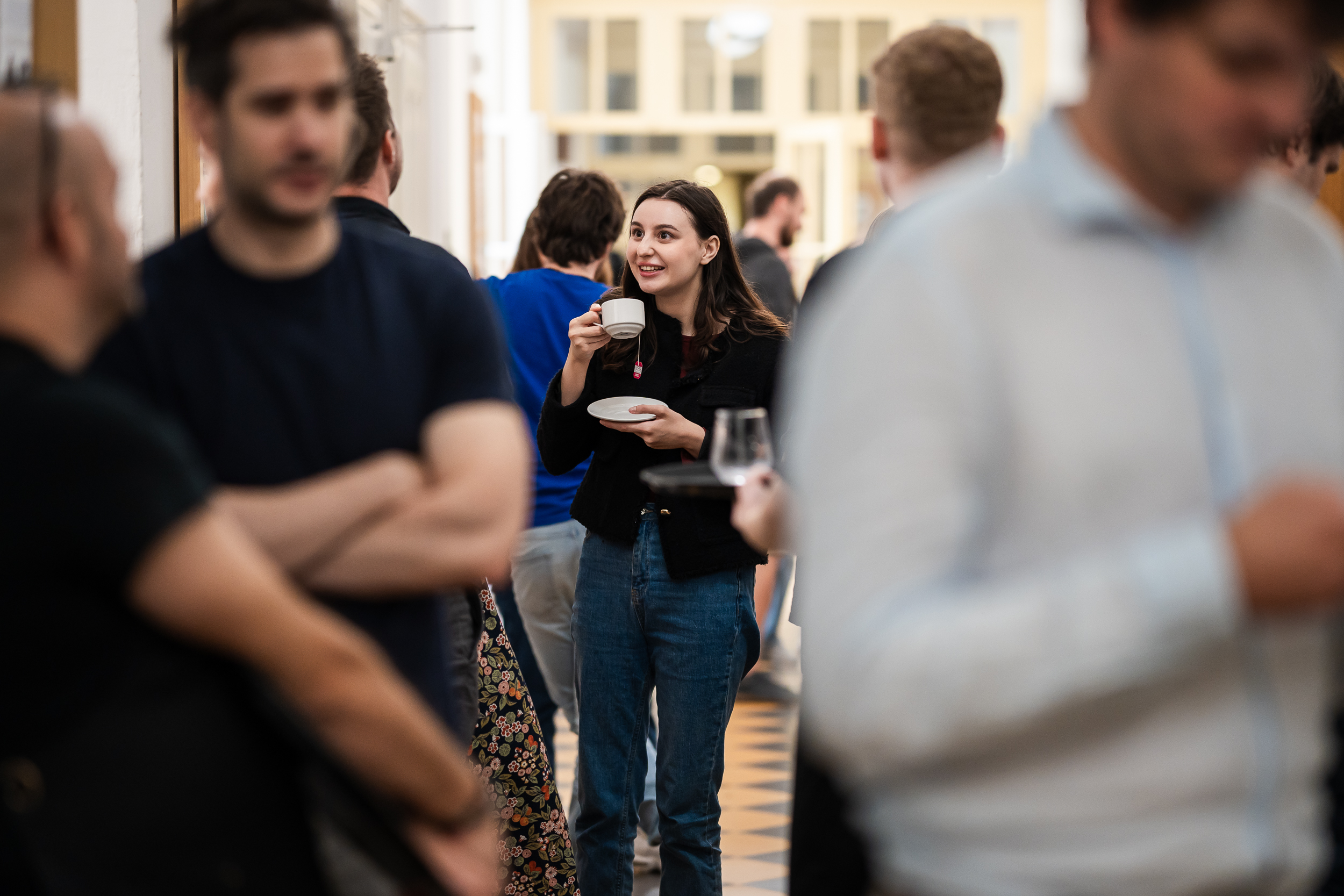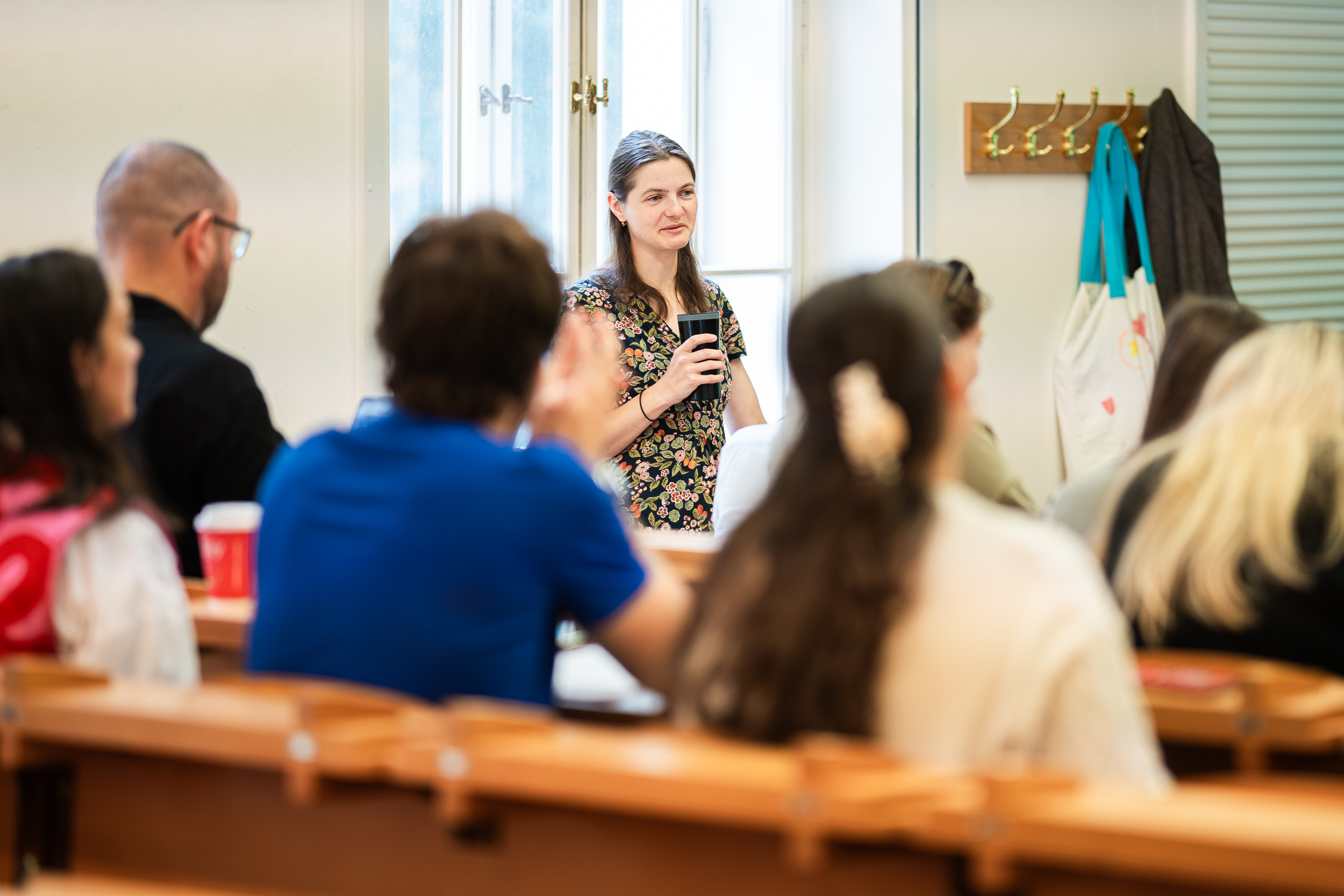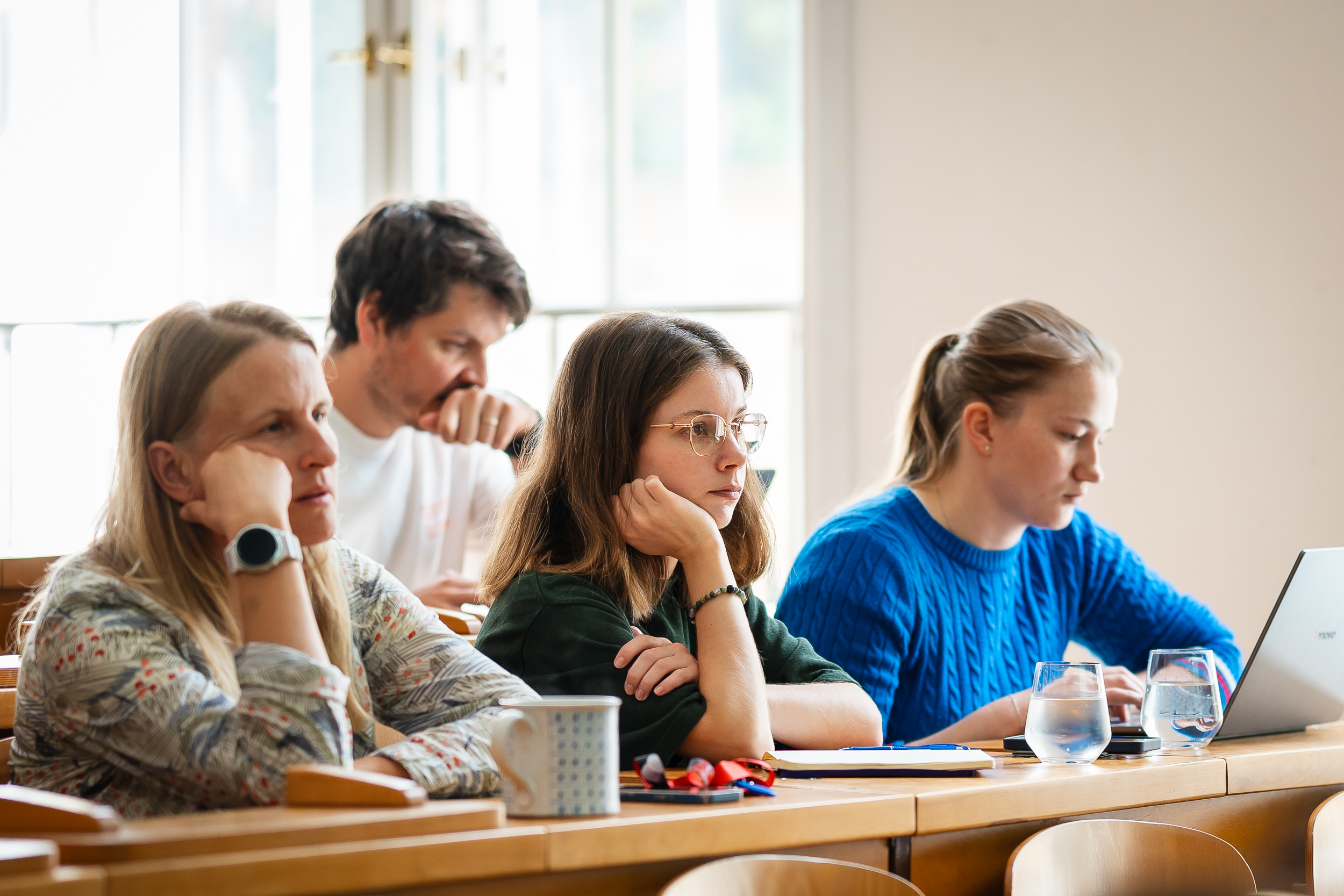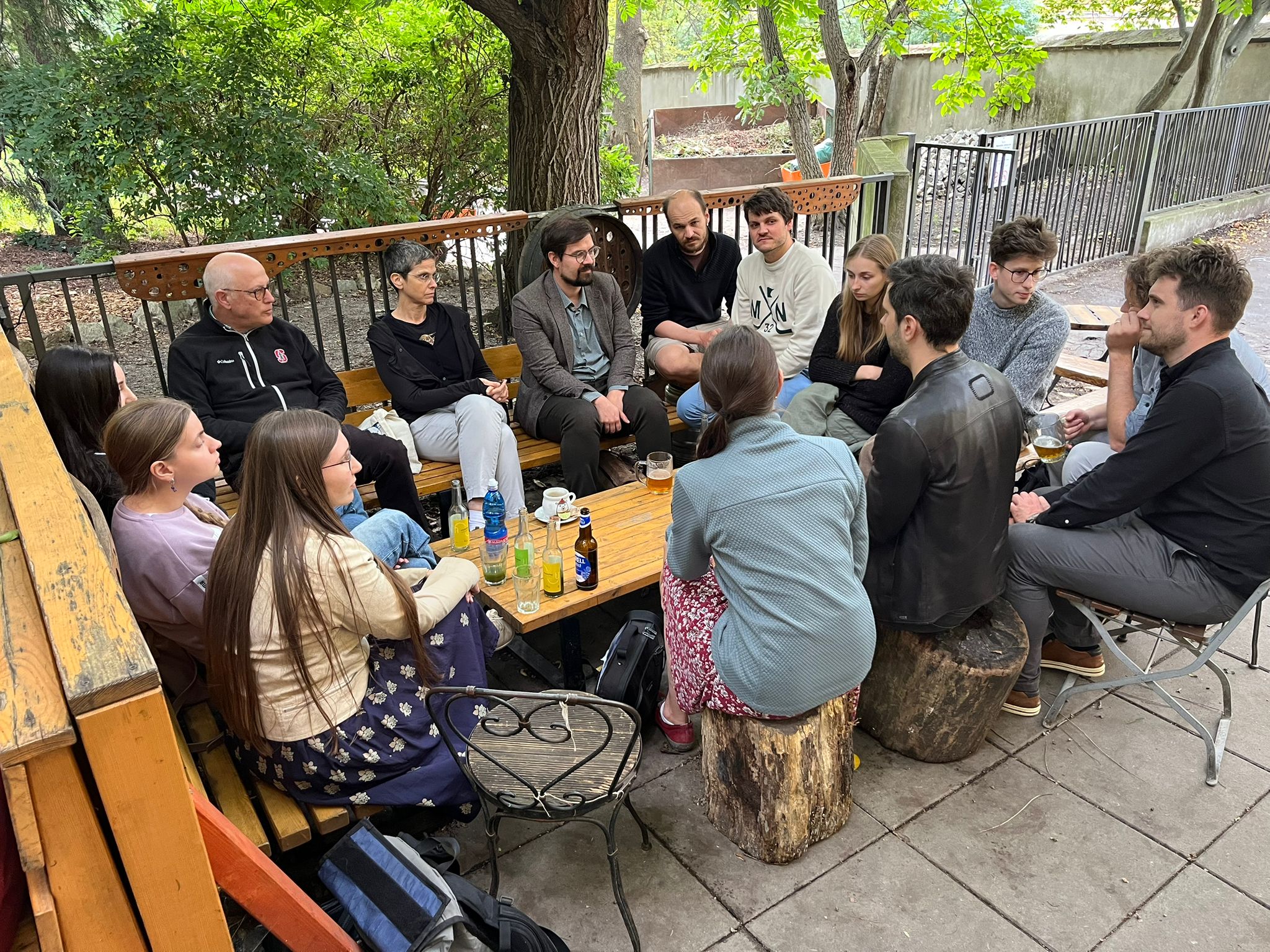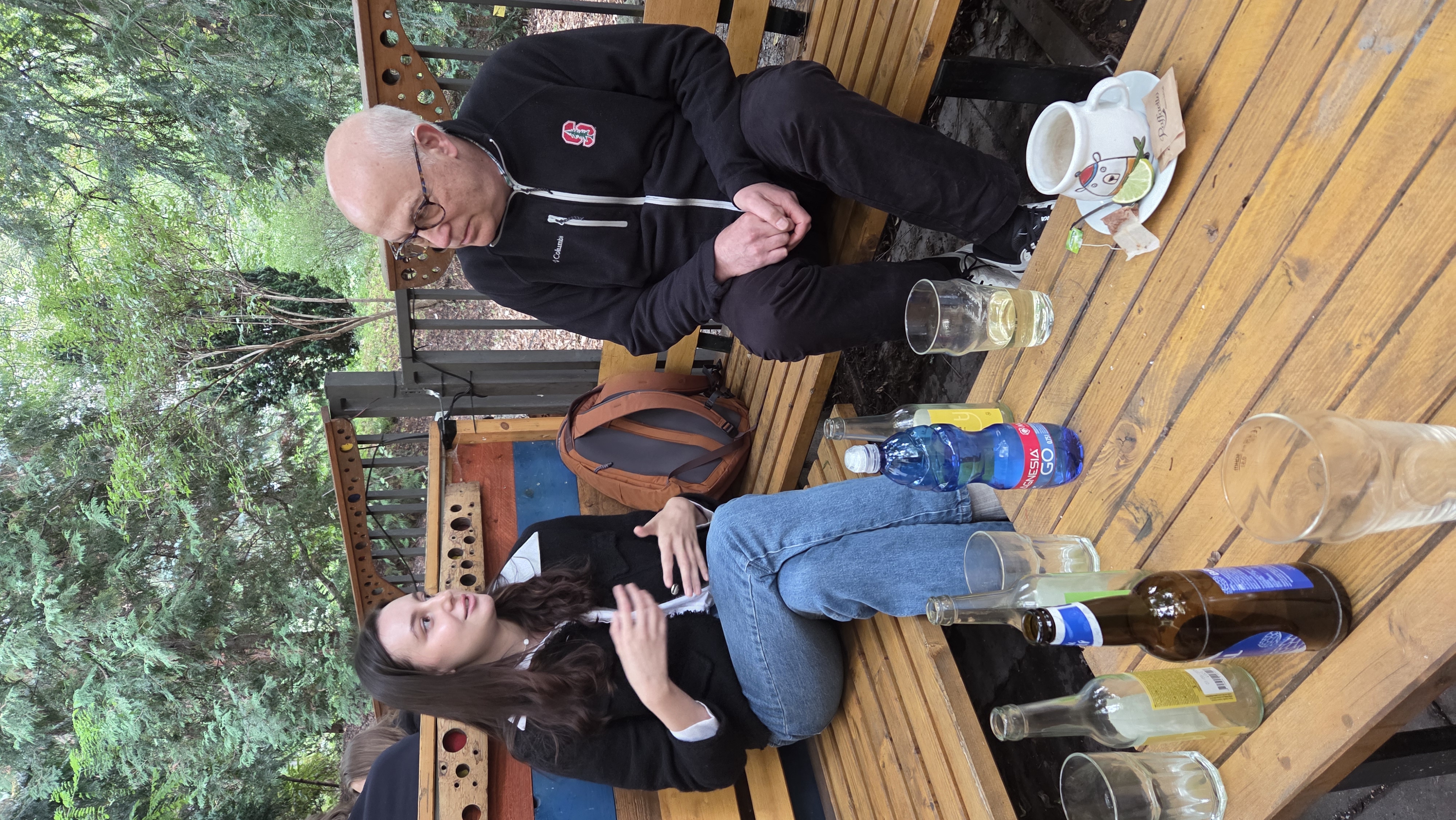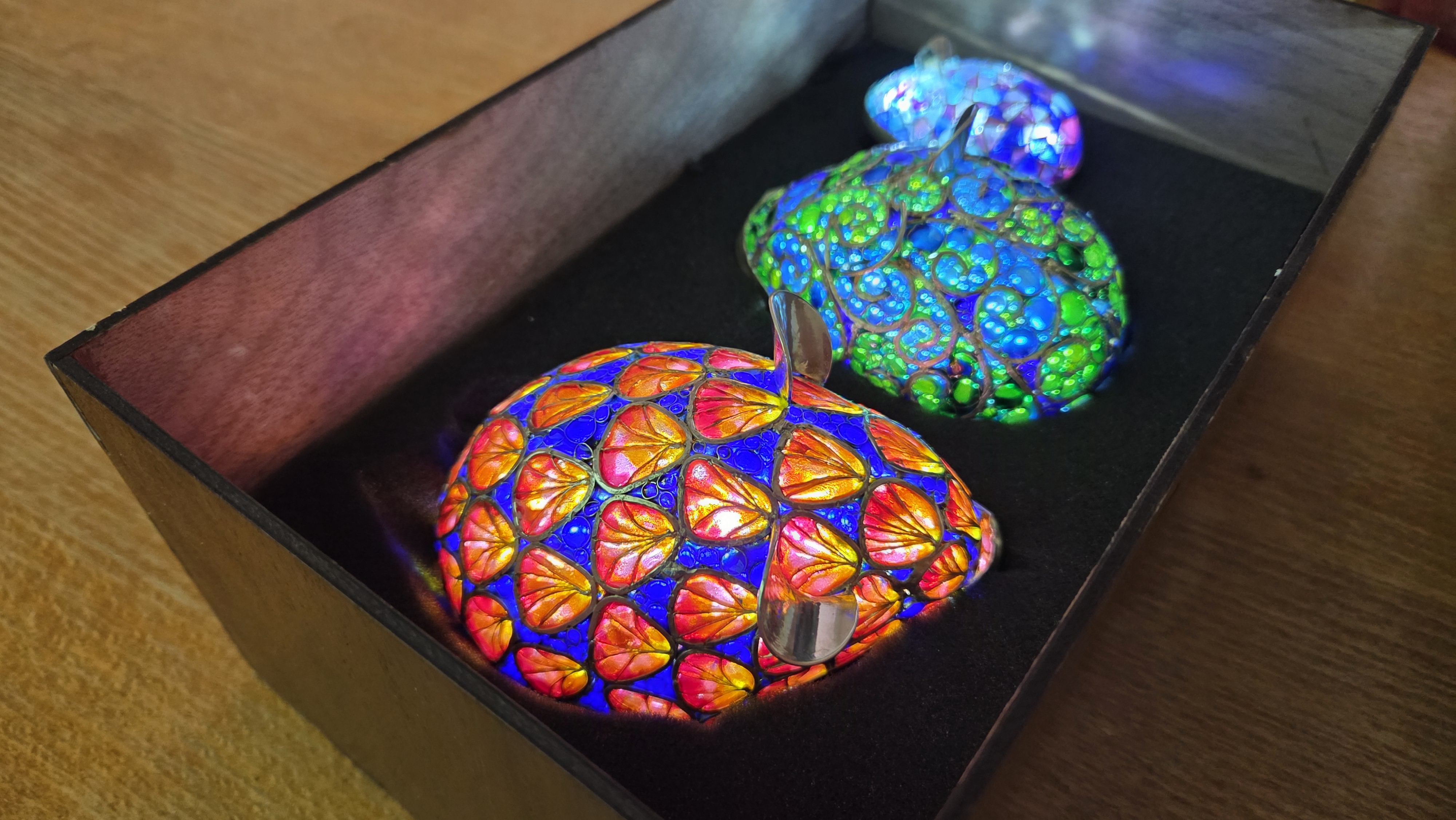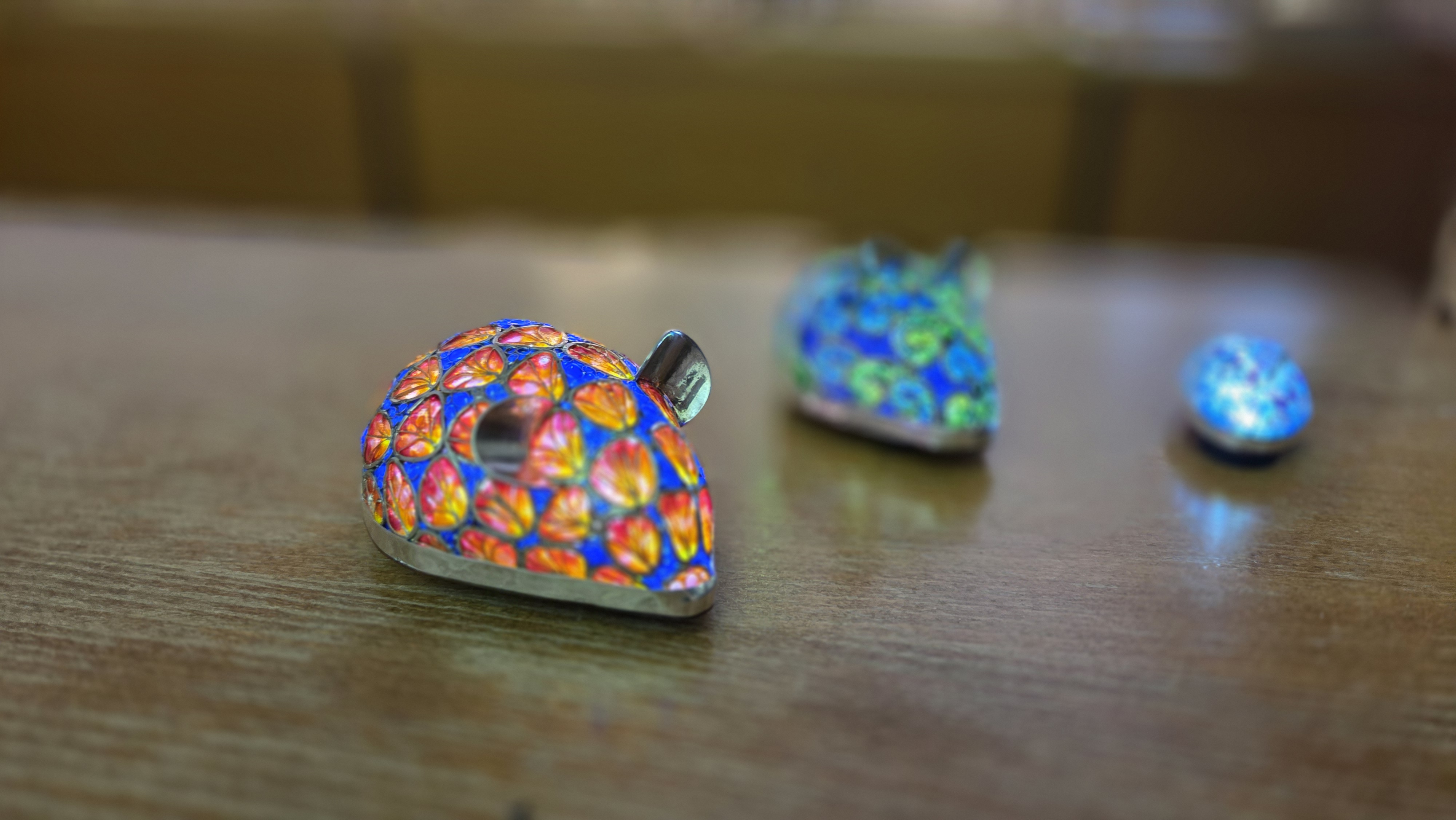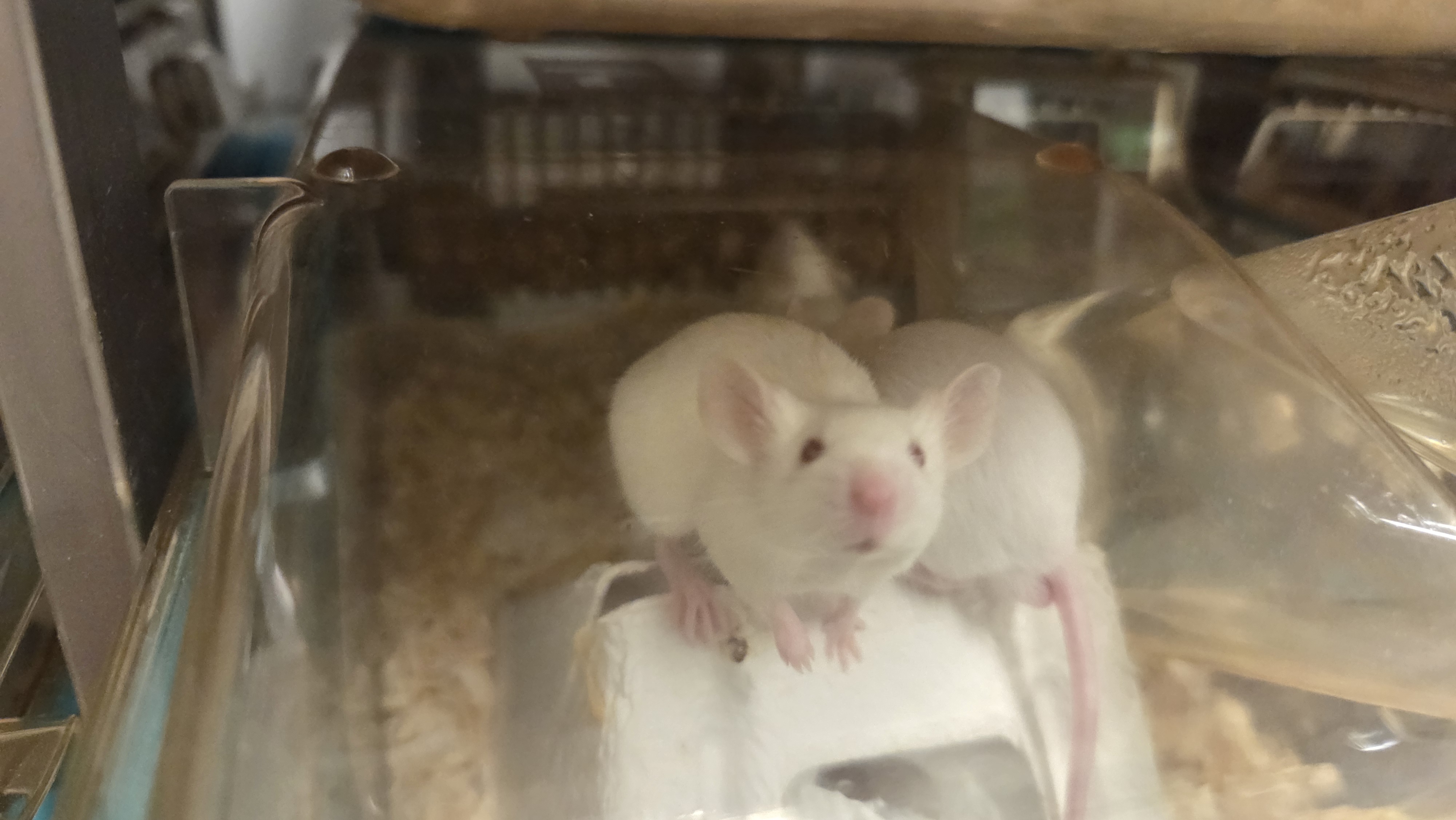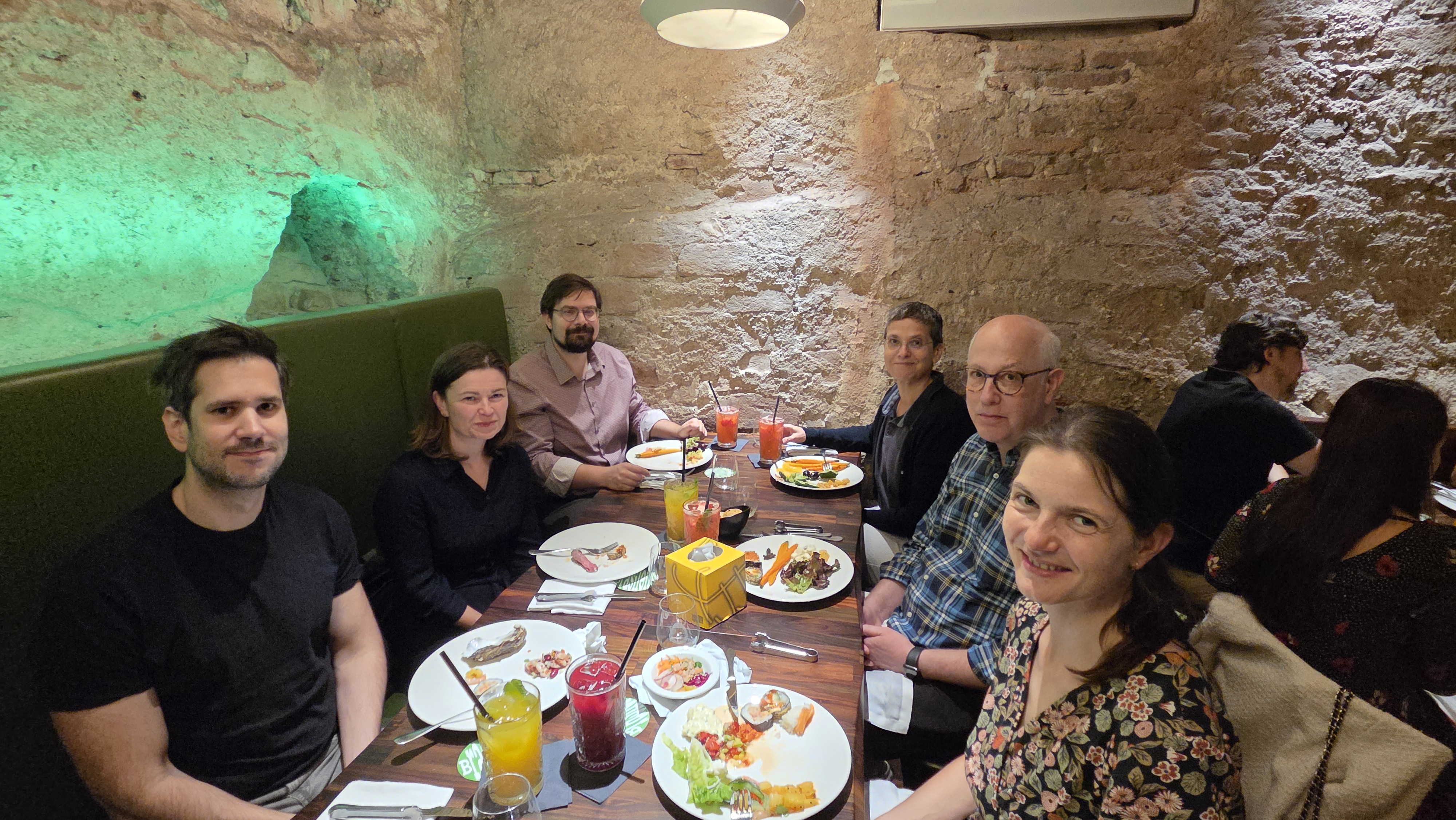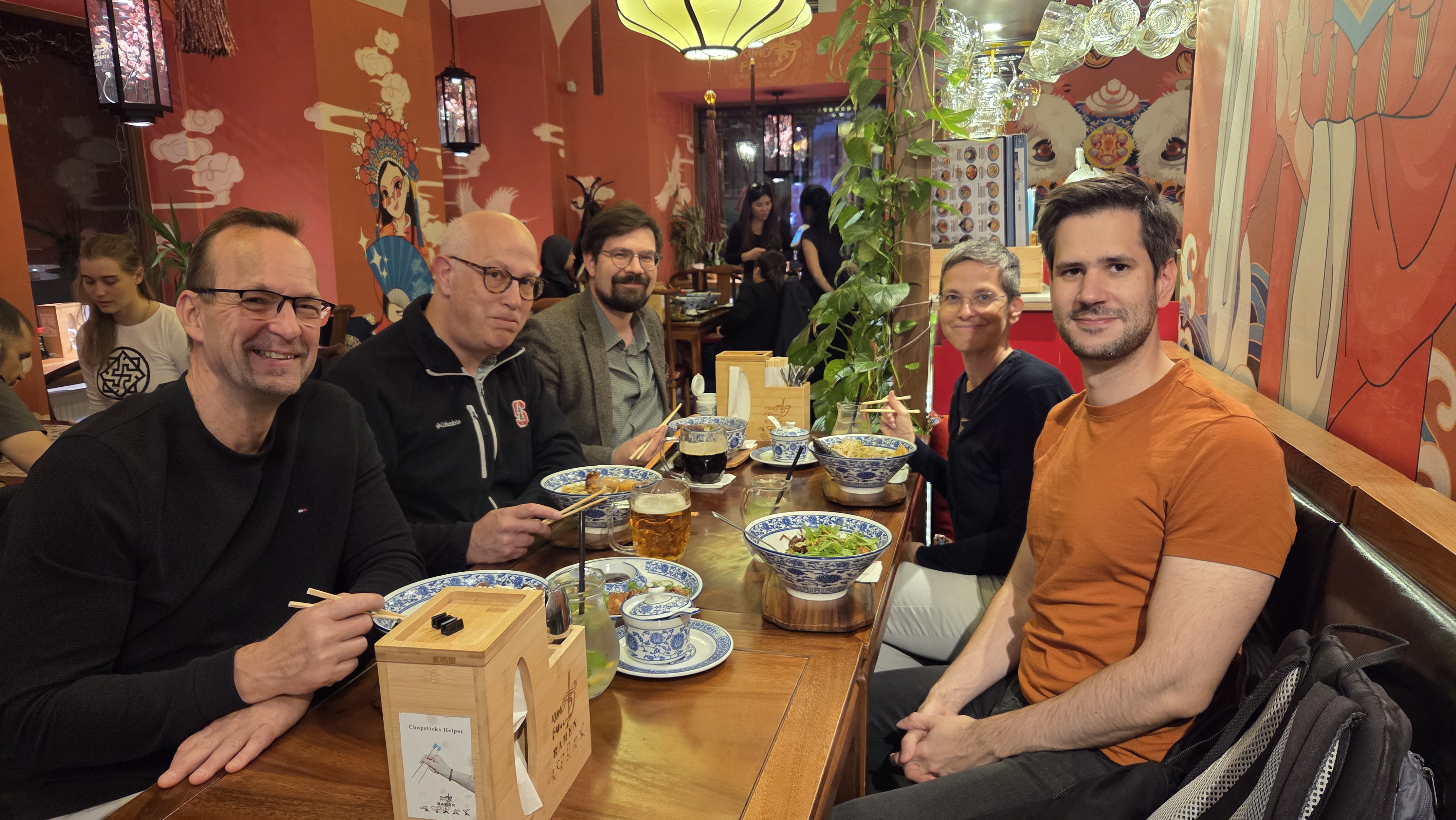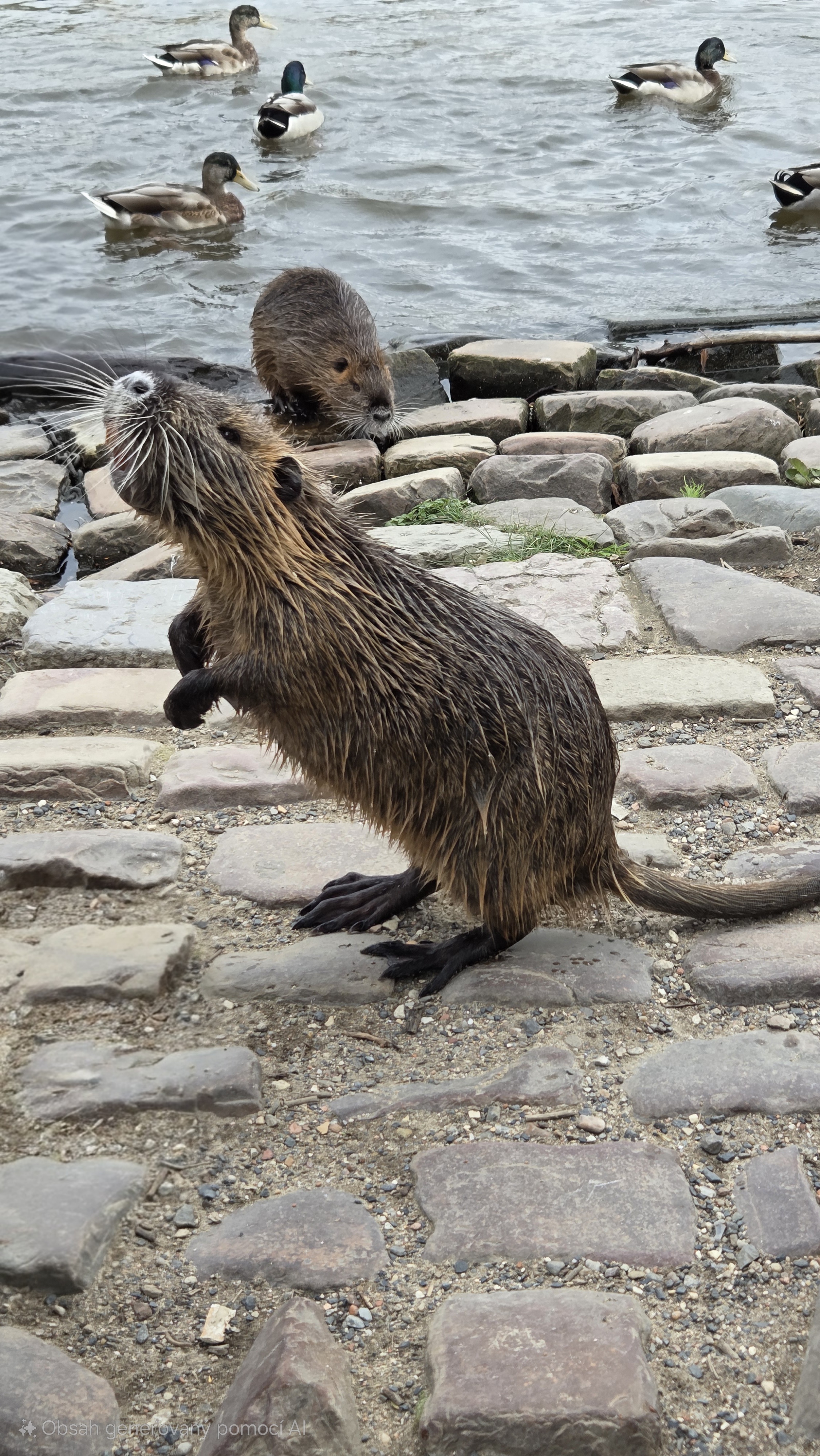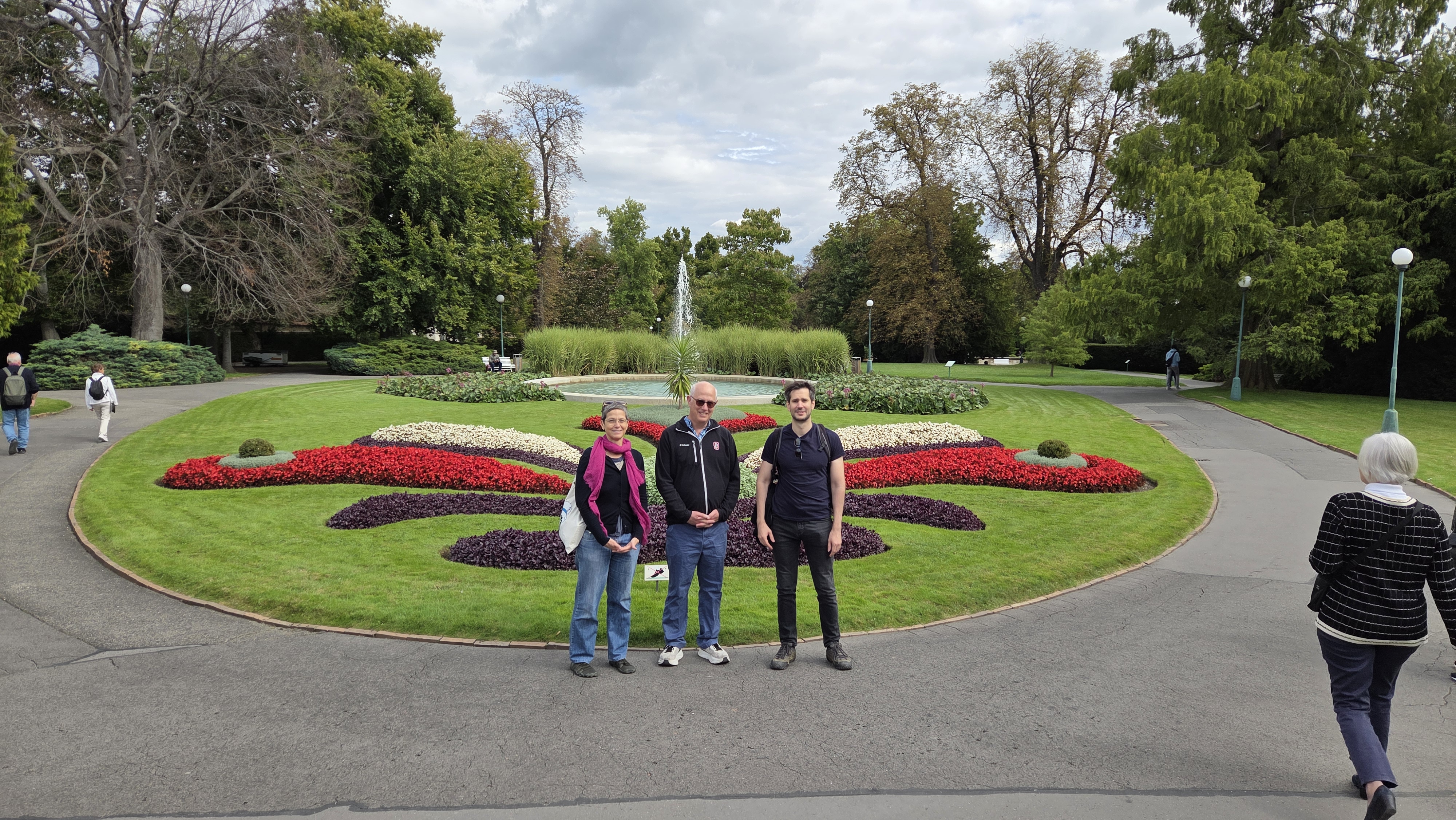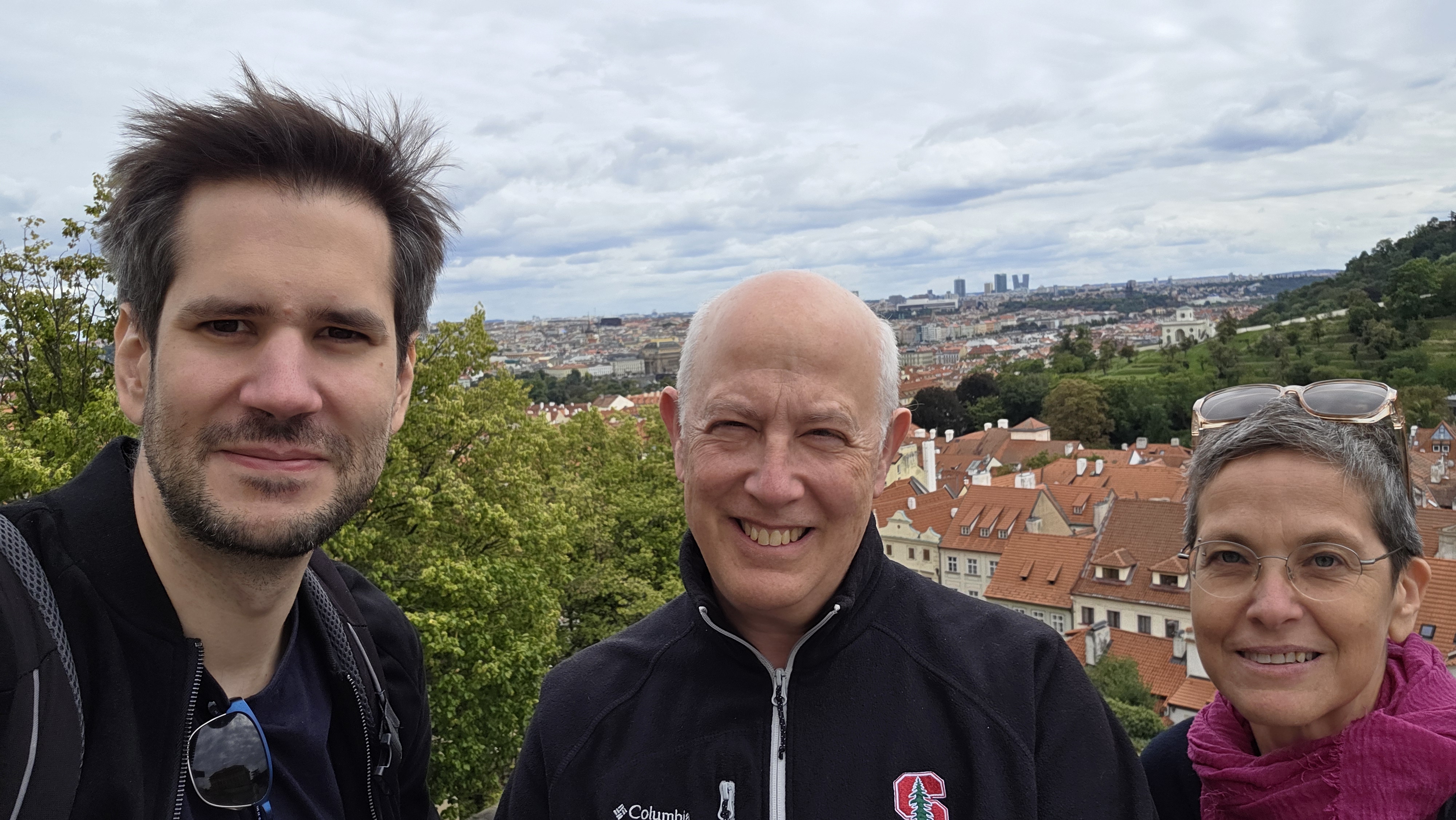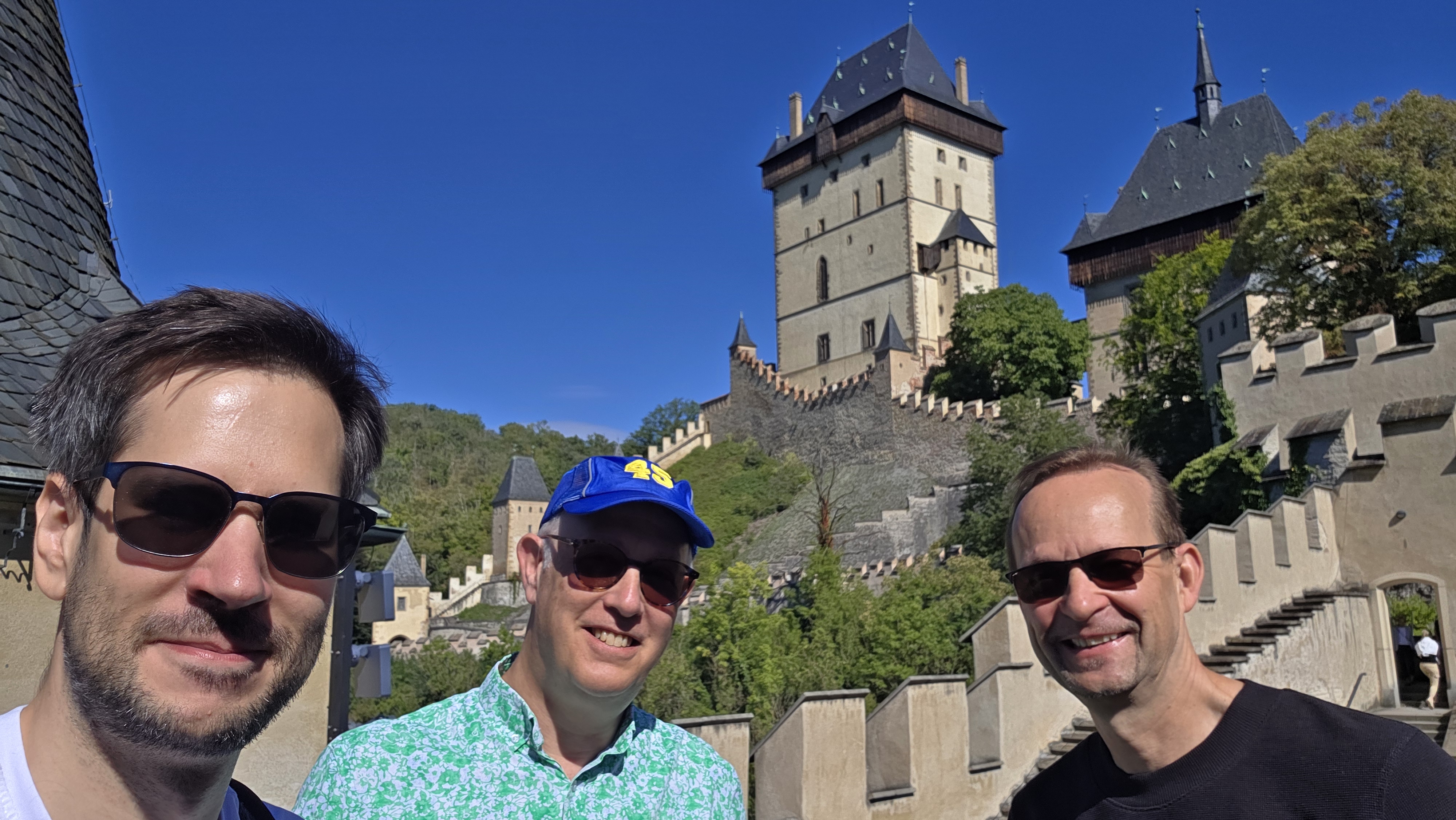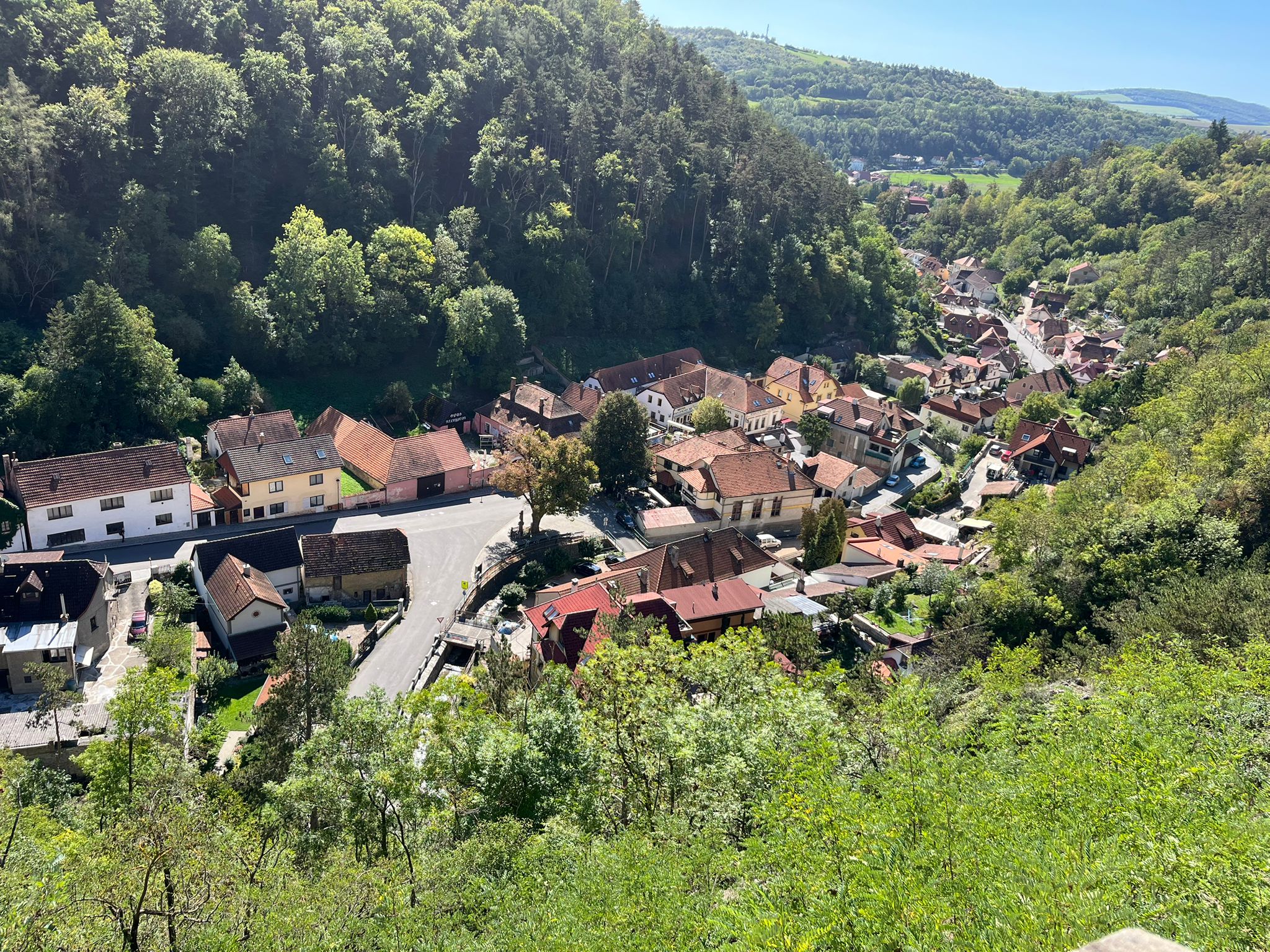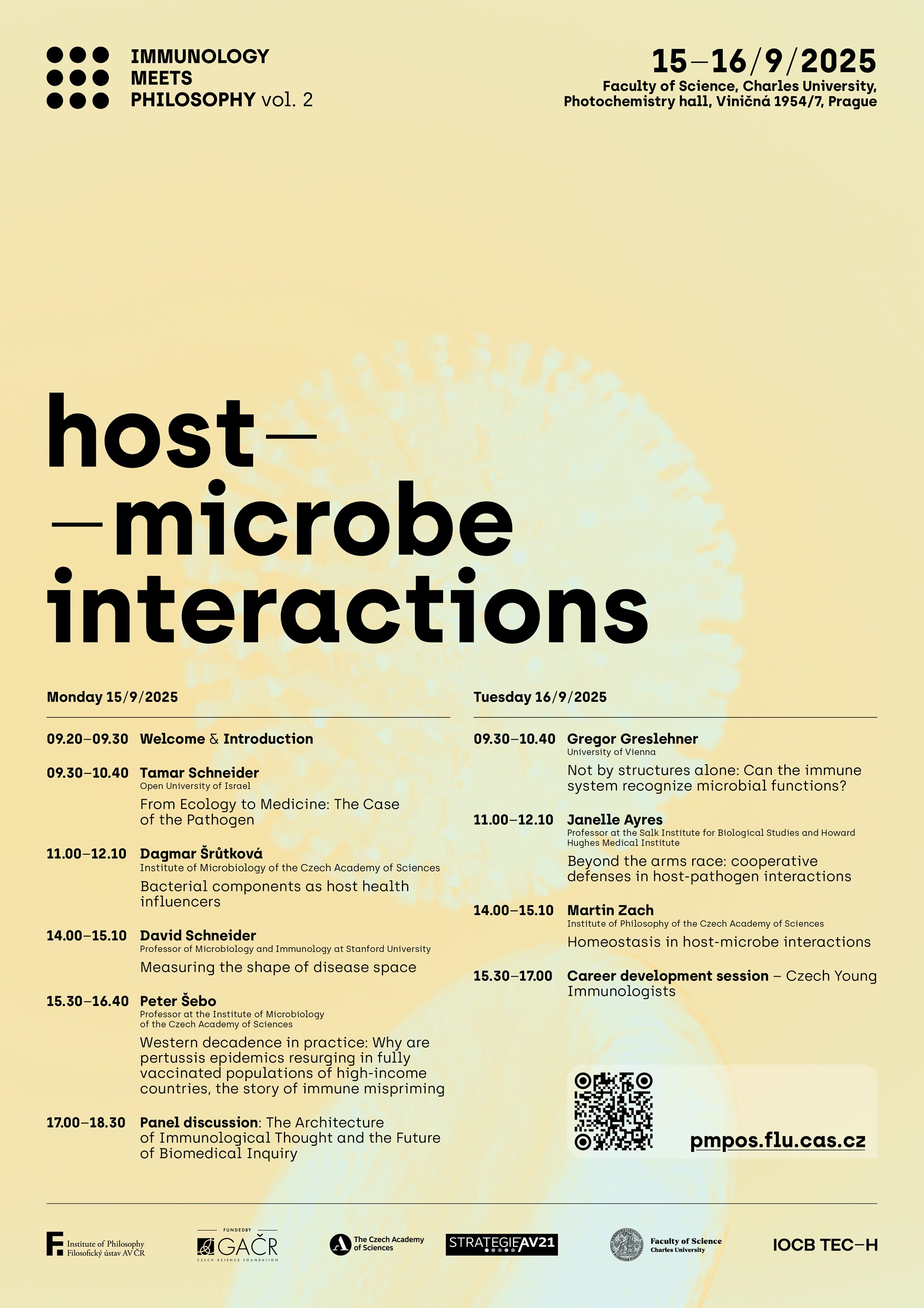Immunology Meets Philosophy vol. 2
15-16 September 2025
Venue: Photochemistry Lecture Hall, Faculty of Science, Charles University, Viničná 7, Prague
This event features experts working on a range of phenomena related to the diverse host-microbe interactions, from infectious diseases to microbiota, with a wide array of perspectives, including evolutionary and metabolic ones.
Registration is required for this event. For in-person attendance, you may register here.
For online stream, register here. Information will be distributed few days prior to the event.
Confirmed speakers
Janelle Ayres (cancelled)
Professor at the Salk Institute for Biological Studies and Howard Hughes Medical Institute
How a host responds to a pathogen determines outcome of infection, and the long-standing belief was that a host needed to kill an invading pathogen in order to survive. Prof. Ayres’ discovery of the host “co-operative defense” system has challenged this notion. As part of her paradigm-shifting work, Ayres showed that a host can employ disease tolerance defenses executed by the co-operative defense system during infection that limits pathology and promotes host survival while having no effect on the pathogen. Ayres made a number of other breakthroughs in this area, revealing not only more about fundamental, dynamic biological processes but also charting discoveries that have potential translational applications for treating a wide array of diseases as well as ways to promote healthy aging.
David Schneider
Professor of Microbiology and Immunology at Stanford University
Prof. Schneider’s research focuses on innate immunity and microbial pathogenesis, particularly how organisms recover from infections. His team studies bacterial, fungal, viral, and malaria infections using innovative methods like phase plots to predict infection outcomes and guide treatments. They prioritize whole-animal health assessments over in vitro studies, employing genetics, microarrays, and flow cytometry. Their work spans two key models: a mouse model for malaria, where they map disease progression to identify recovery mechanisms, and fruit flies, leveraging Drosophila’s genetic tools to uncover insights into infection dynamics.
Tracy Hussell (cancelled)
Prof. Hussell’s research focus is on studying the long-term impact of infections on the lung and how cell crosstalk can go wrong. She is now working on an idea that immune cells are not to blame in inflammation, it is just that they are given the wrong cues. Prof. Hussell also currently serves as the elected president of the British Society for Immunology.
Tamar Schneider
Open University of Israel
Dr. Tamar Schneider is a philosopher of science working on the notion of individuality in relation to its close and intimate microbial milieu, as they appear in ecology, evolution, and medicine. Their work is guided by the heuristics of mutuality of interactions and its unique role in constructing knowledge of systems and processes in biology.
Gregor Greslehner
University of Vienna
Dr. Gregor Greslehner is a philosopher of science, trained in philosophy and molecular biology. His research is focused on the relationship between structure and function, from proteins to higher levels of organization, aimed at explicating different notions of structure and function and the roles these notions play in scientific explanations for biological phenomena in immunology, host-microbiome interactions, and aging. He is investigating the structural diversity of molecular patterns and regulatory motifs and how they can be used to explain different functional features of biological systems with conceptual approaches close to scientific practice.
Peter Šebo
Professor at the Institute of Microbiology of the Czech Academy of Sciences
Prof. Šebo is the head of Laboratory of Molecular Biology of Bacterial Pathogens where he studies the tricks and tools used by pathogenic bacteria to suppress our immune defense. In particular, his group studies among other the emerging pediatric pathogen Kingella kingeae and the major focus is on the whooping cough agent Bordetella pertussis that causes the respiratory illness called pertussis. This infectious disease can be fatal to smallest non-vaccinated infants and is currently on the rise in the most developed and wealthiest countries (where vaccine refusal is on the rise and less reactogenic but also less efficacious pertussis vaccines are used).
Dagmar Šrůtková
Institute of Microbiology of the Czech Academy of Sciences
Dr. Dagmar Šrůtková is a researcher at the group of Integrative Physiology of Gnotobionts uses the germ-free mouse model to study the microbiota, specific bacterial strains and bacterial antigenic components impact on the physiological status of the eukaryotic host in two main research lines 1) host juvenile growth and 2) prevention/therapy of allergic sensitization and allergy development.
Martin Zach
Institute of Philosophy of the Czech Academy of Sciences
Dr. Zach is a philosophers of science whose research interests concern the concept of disease tolerance, and the interactions between the immune system and other physiological systems.
